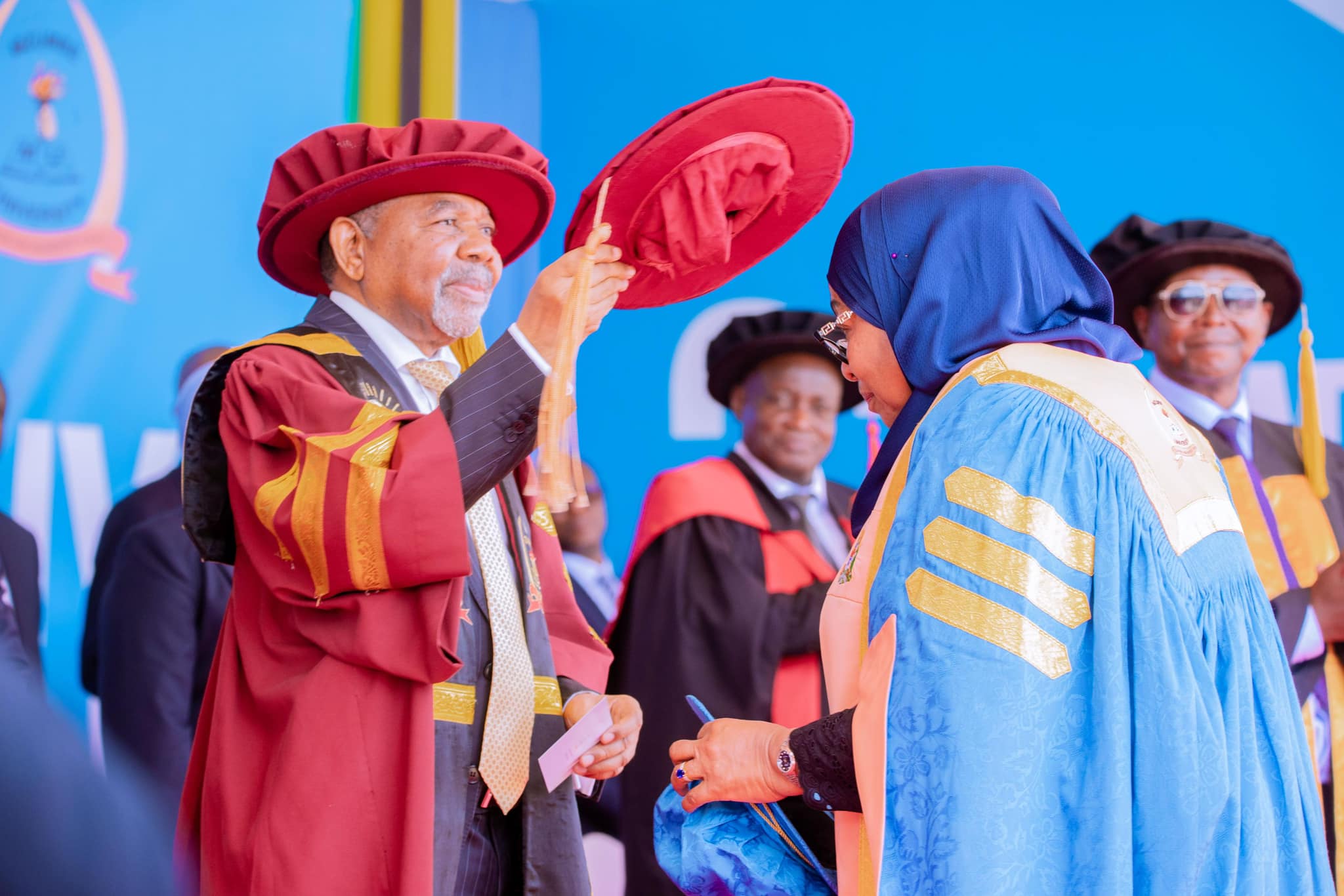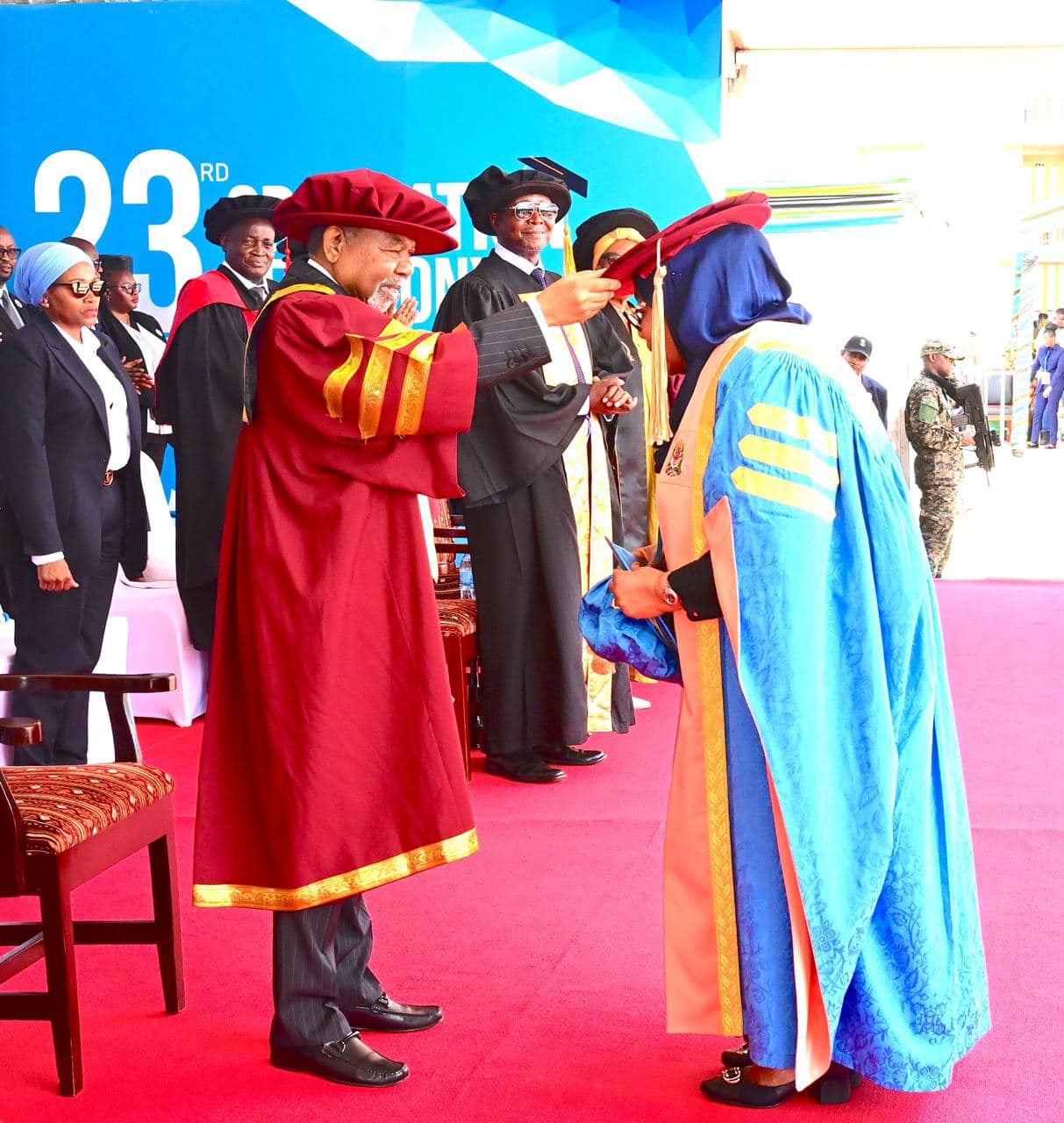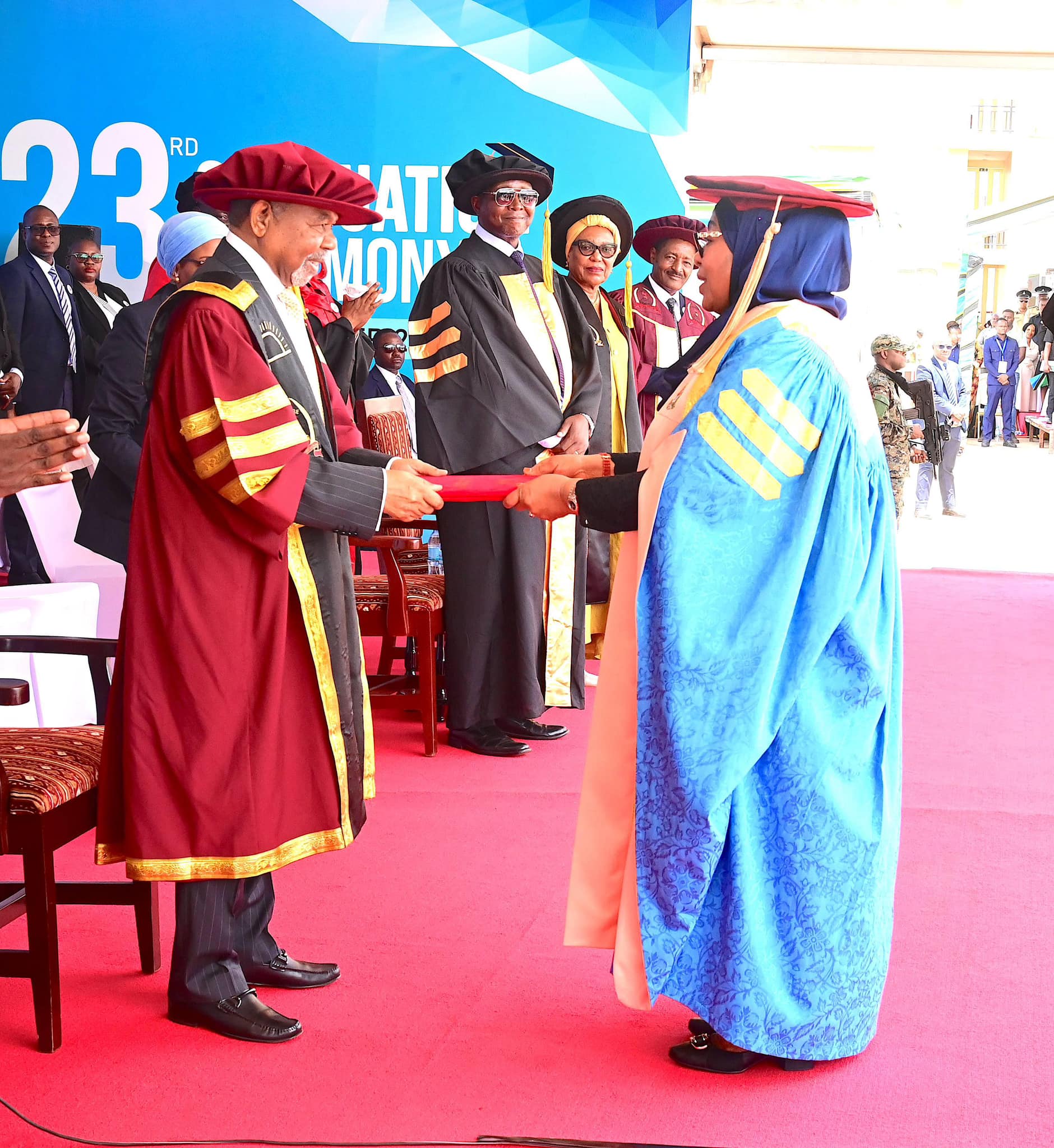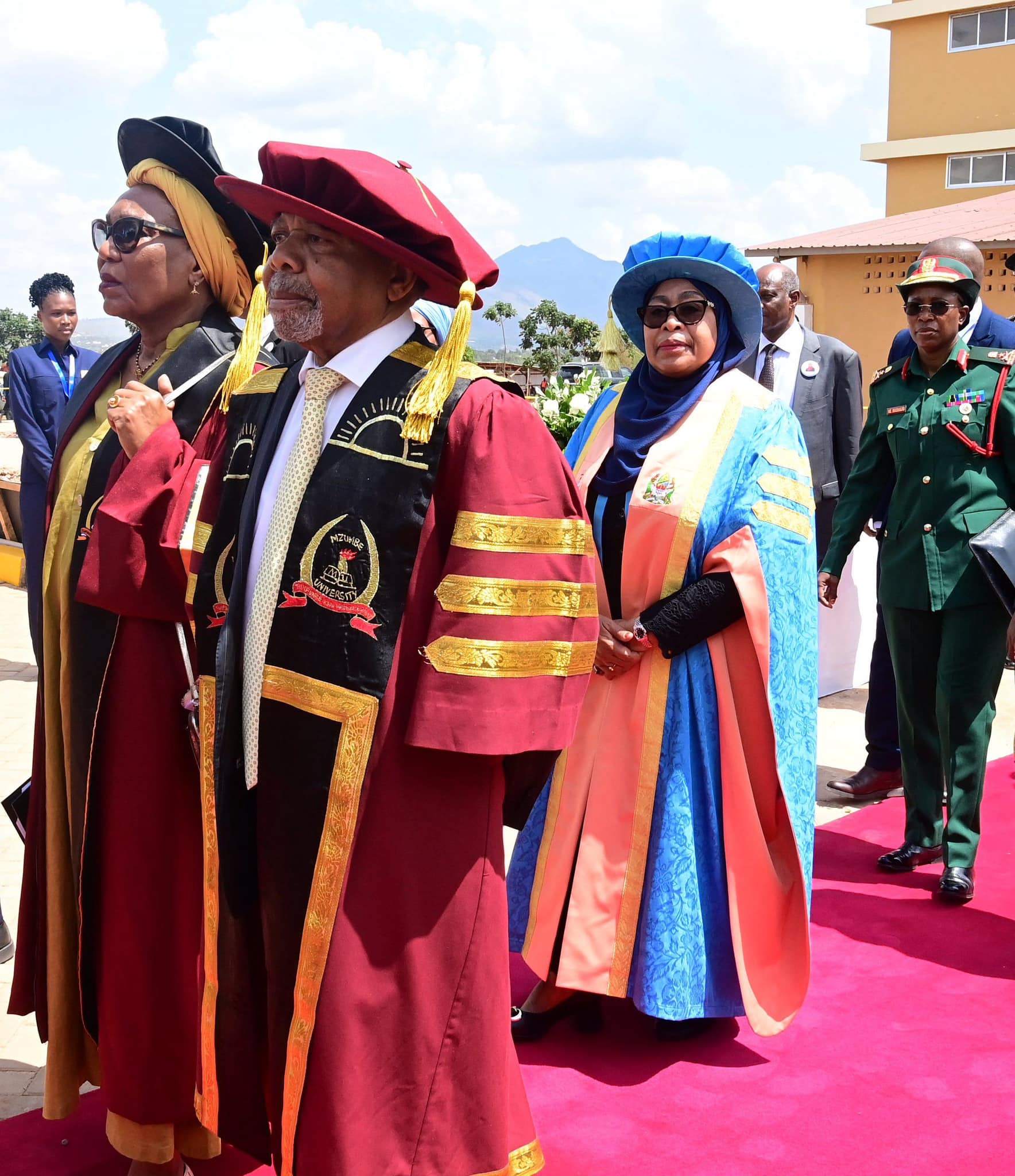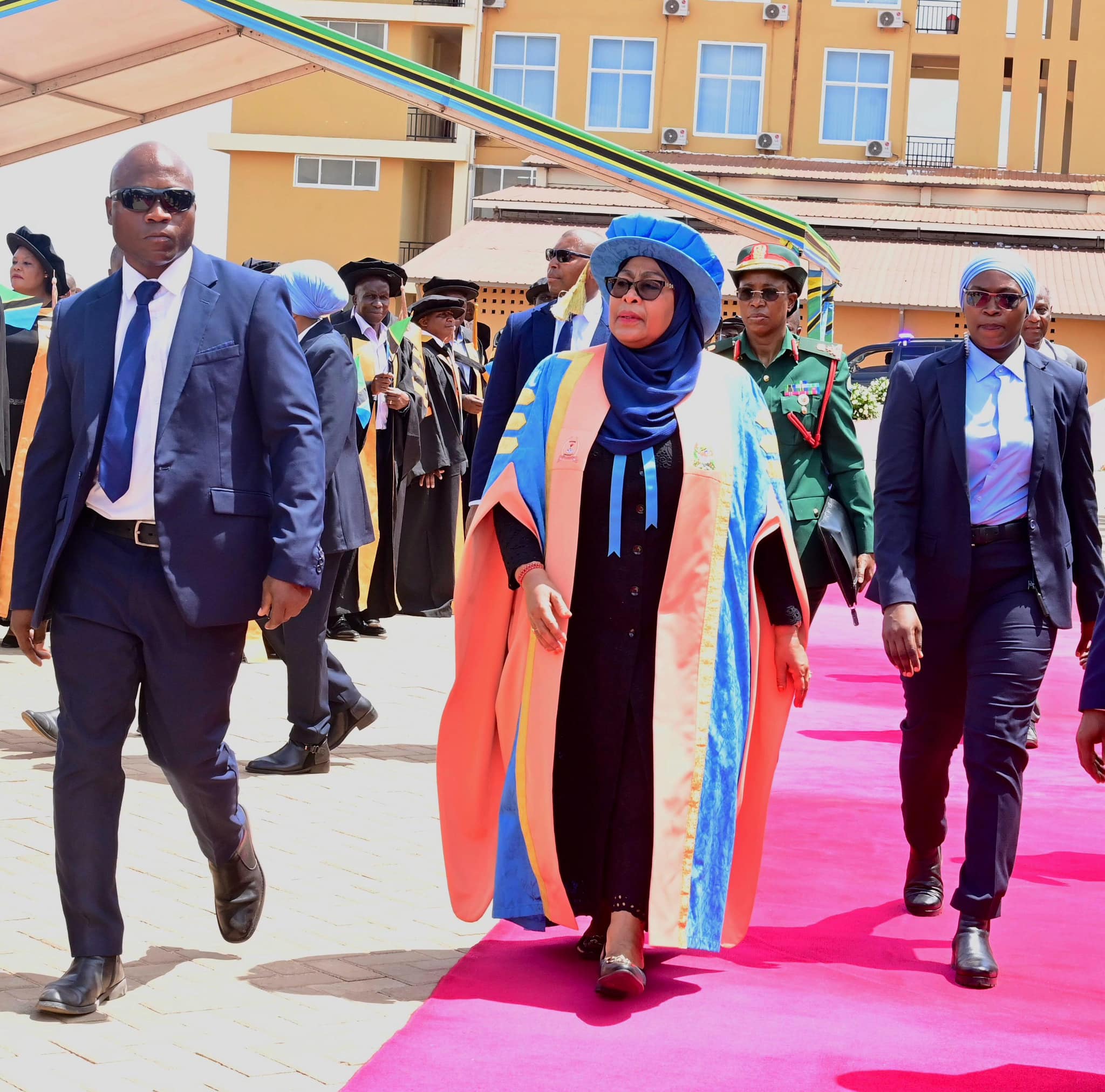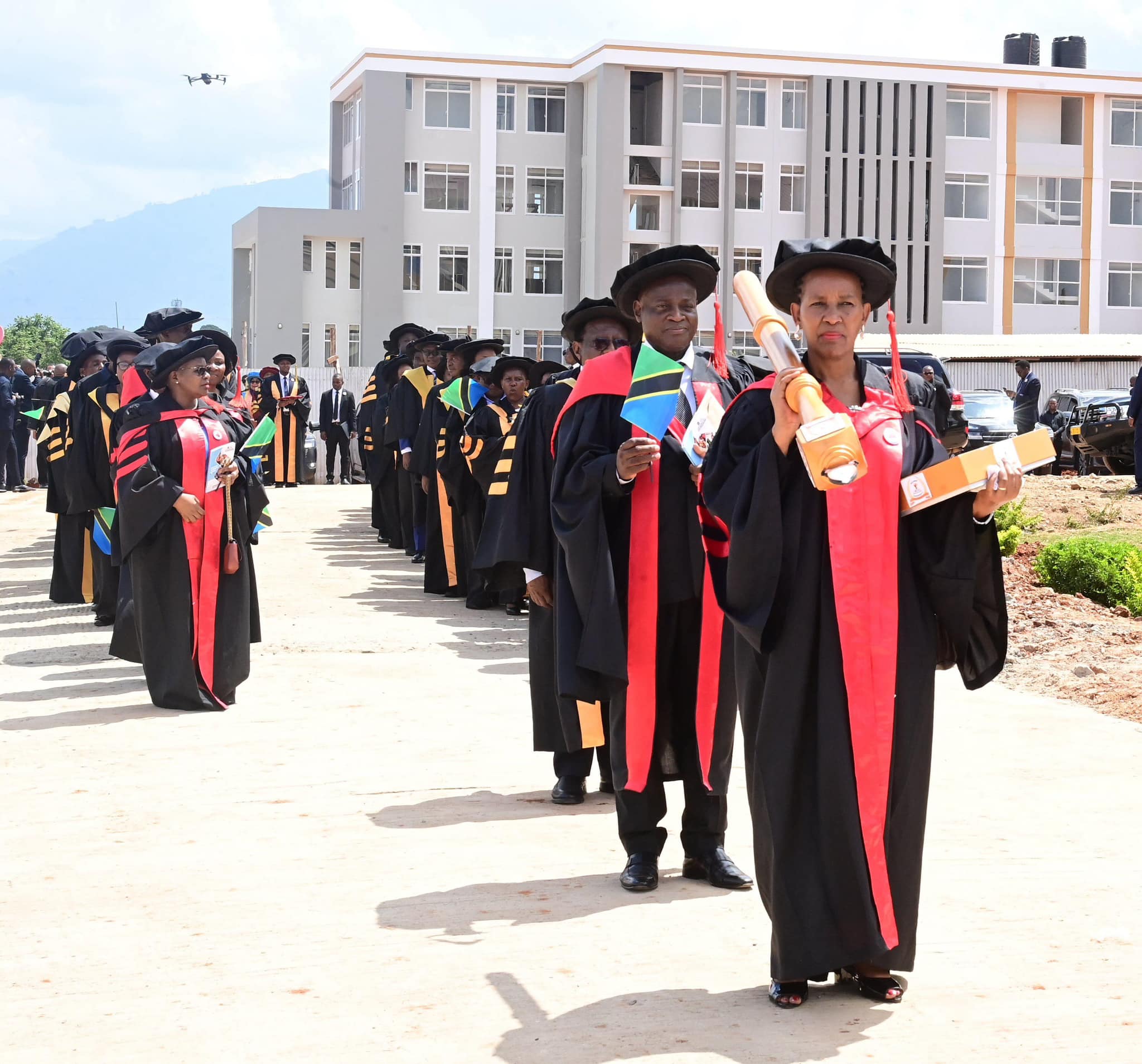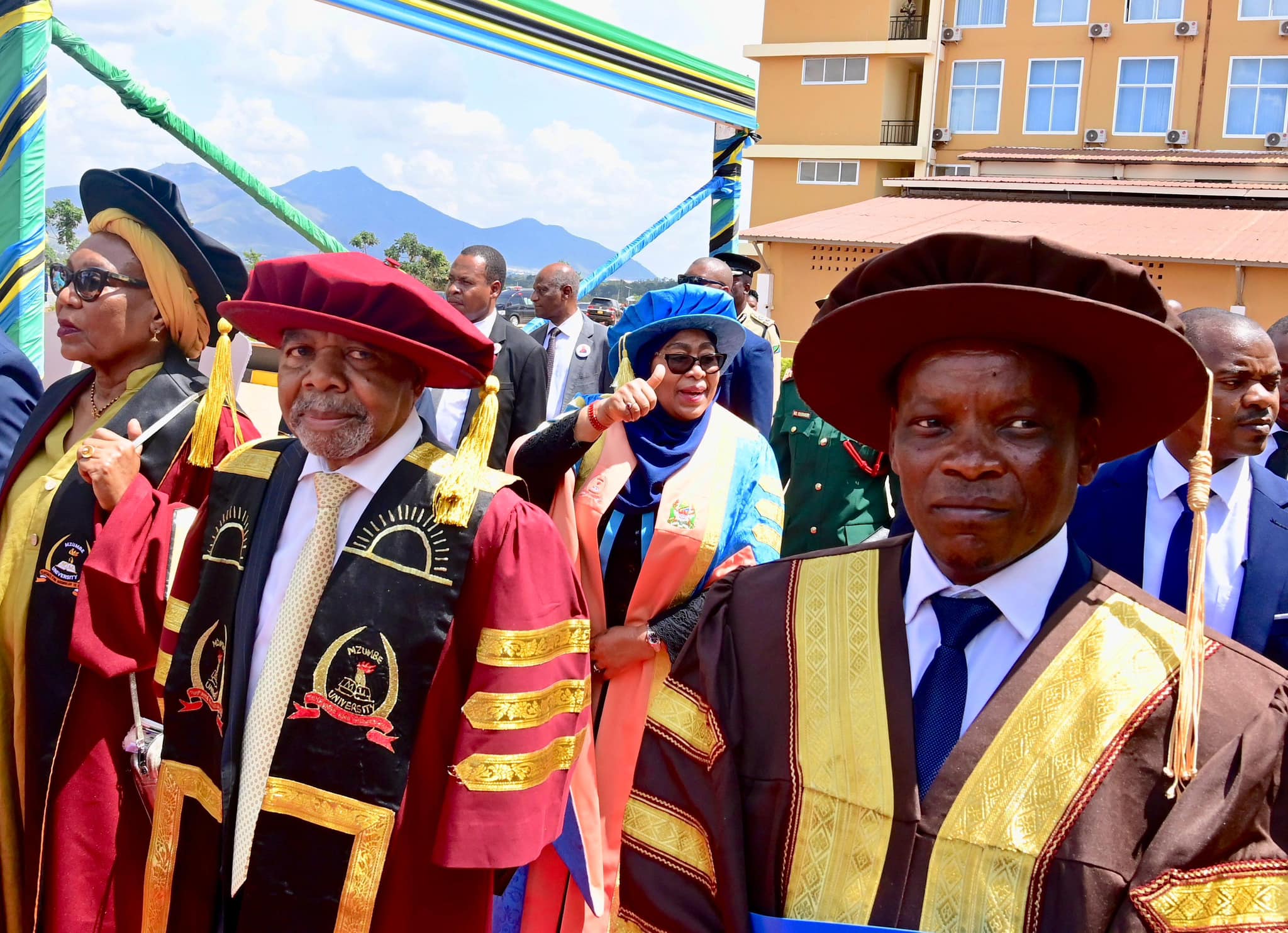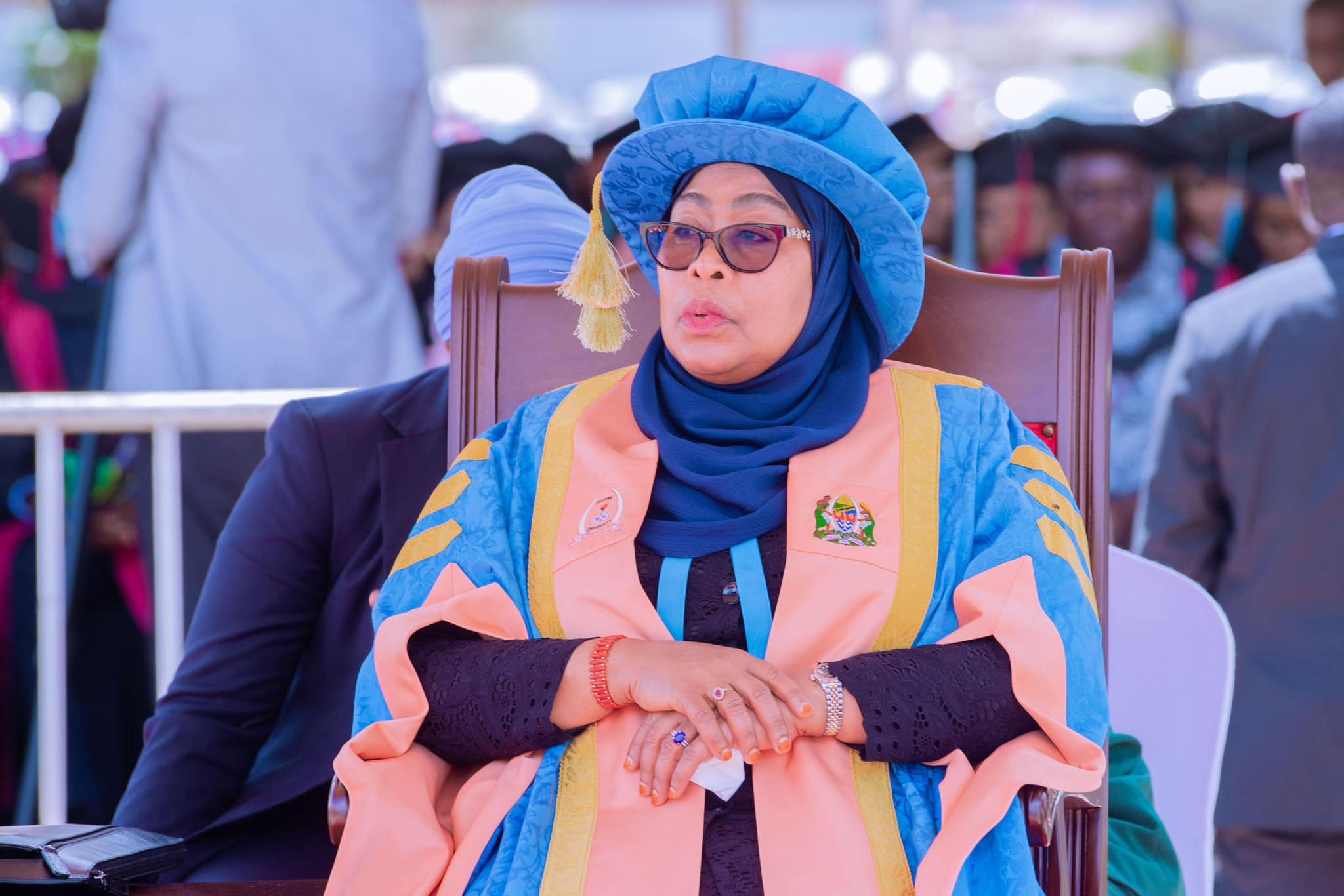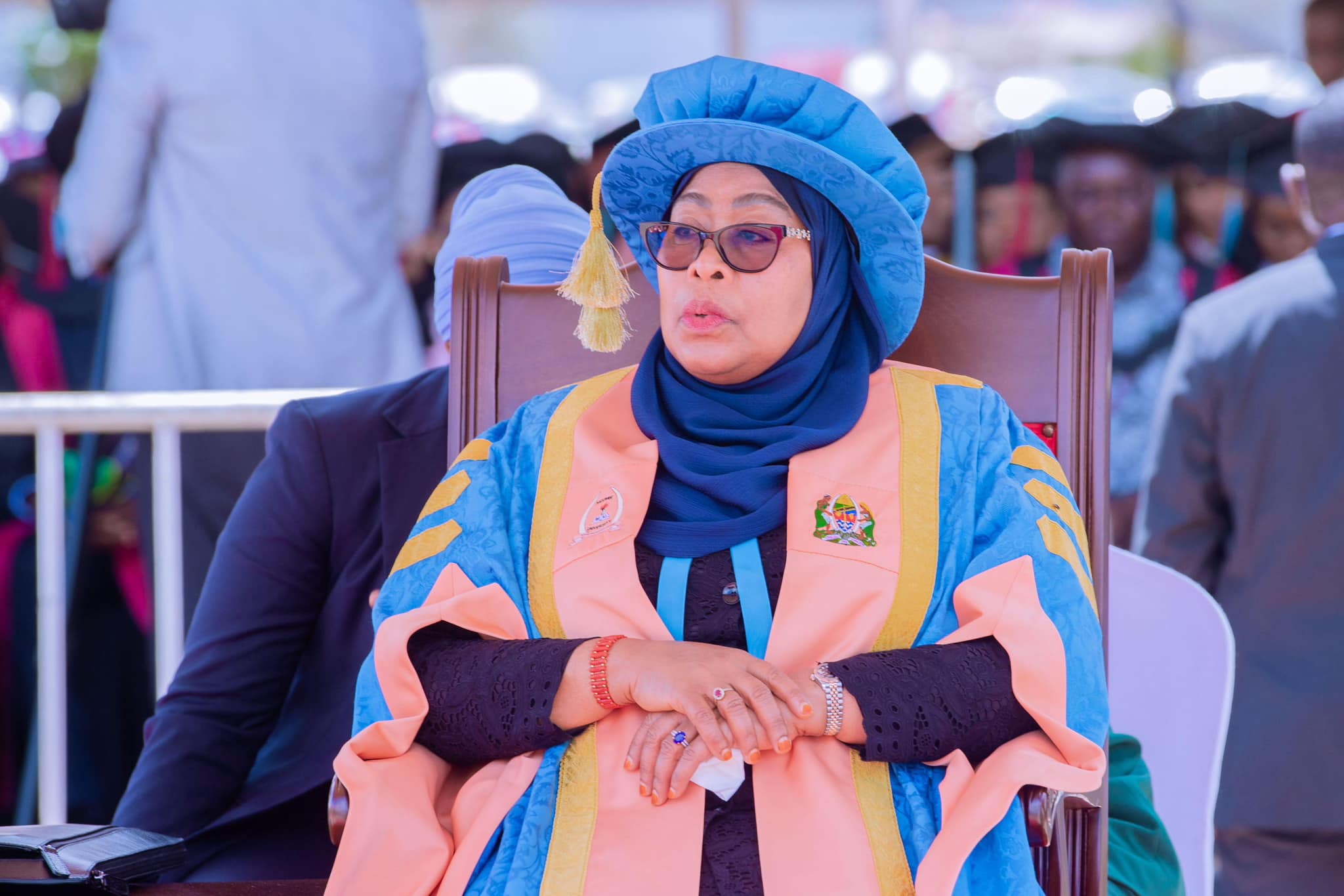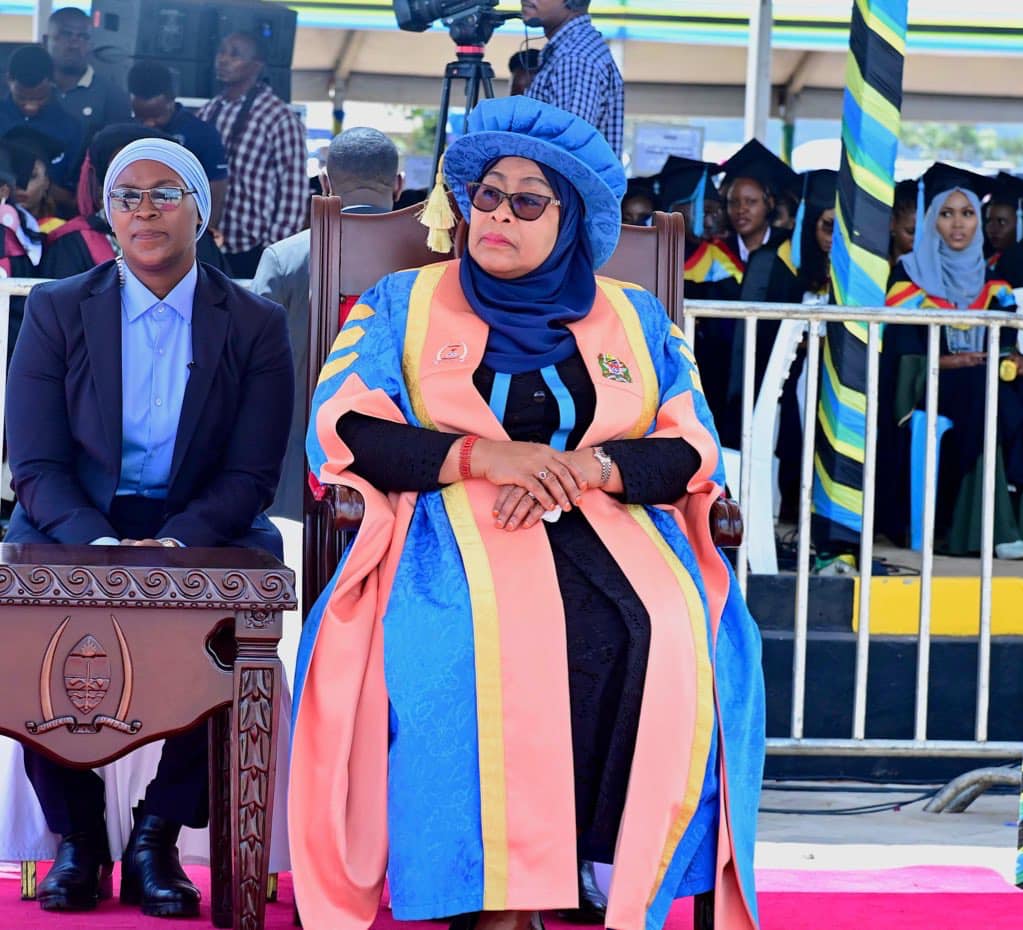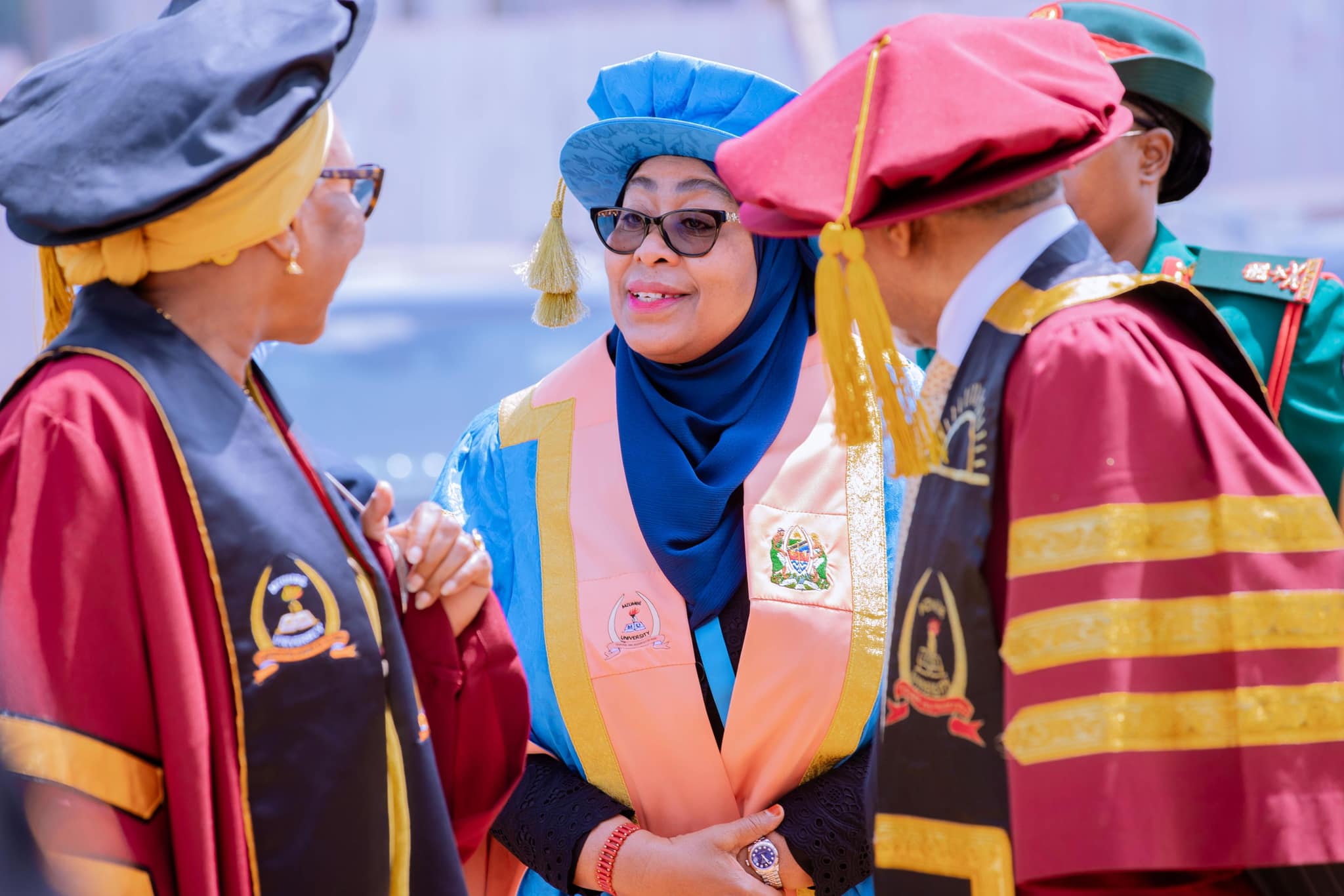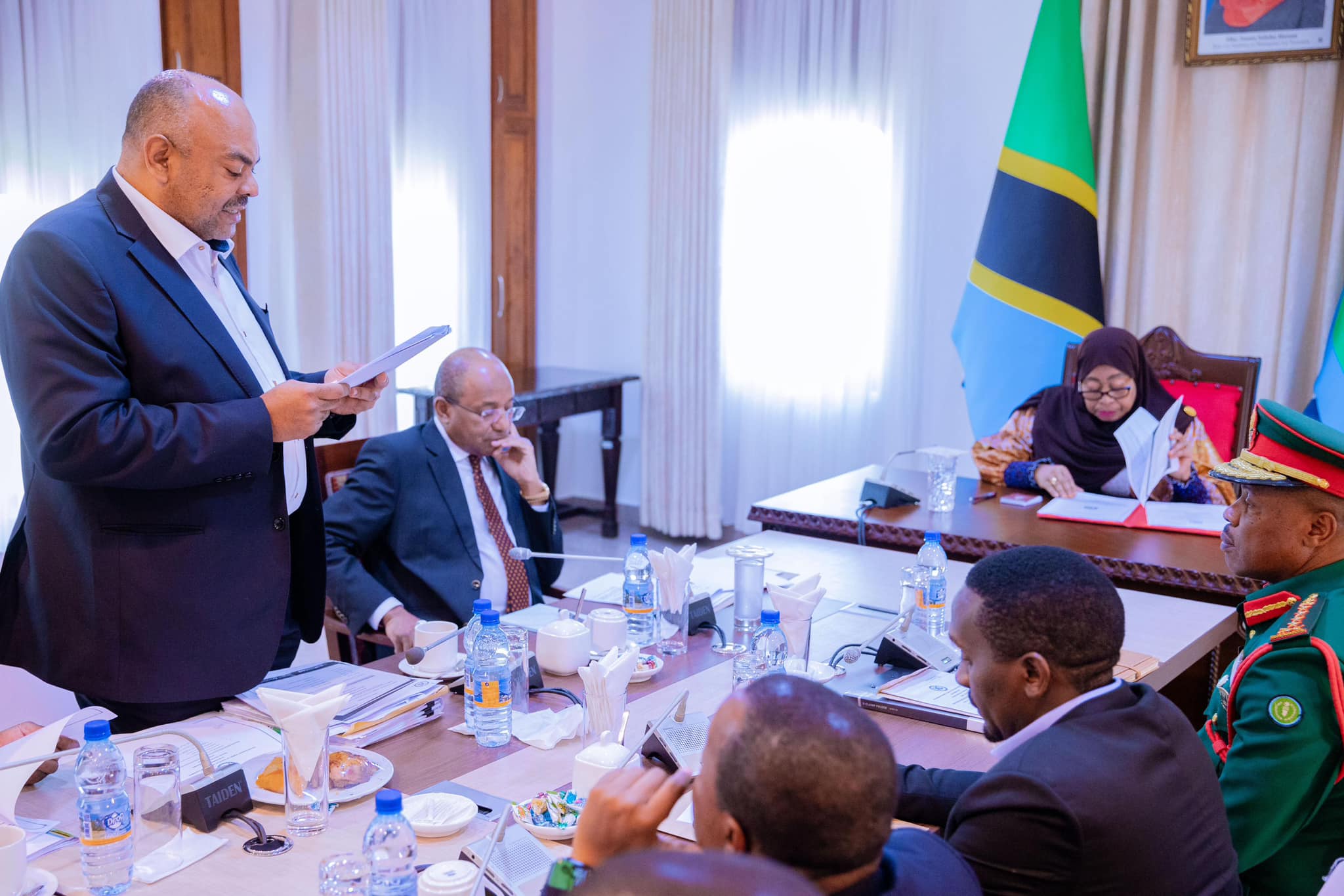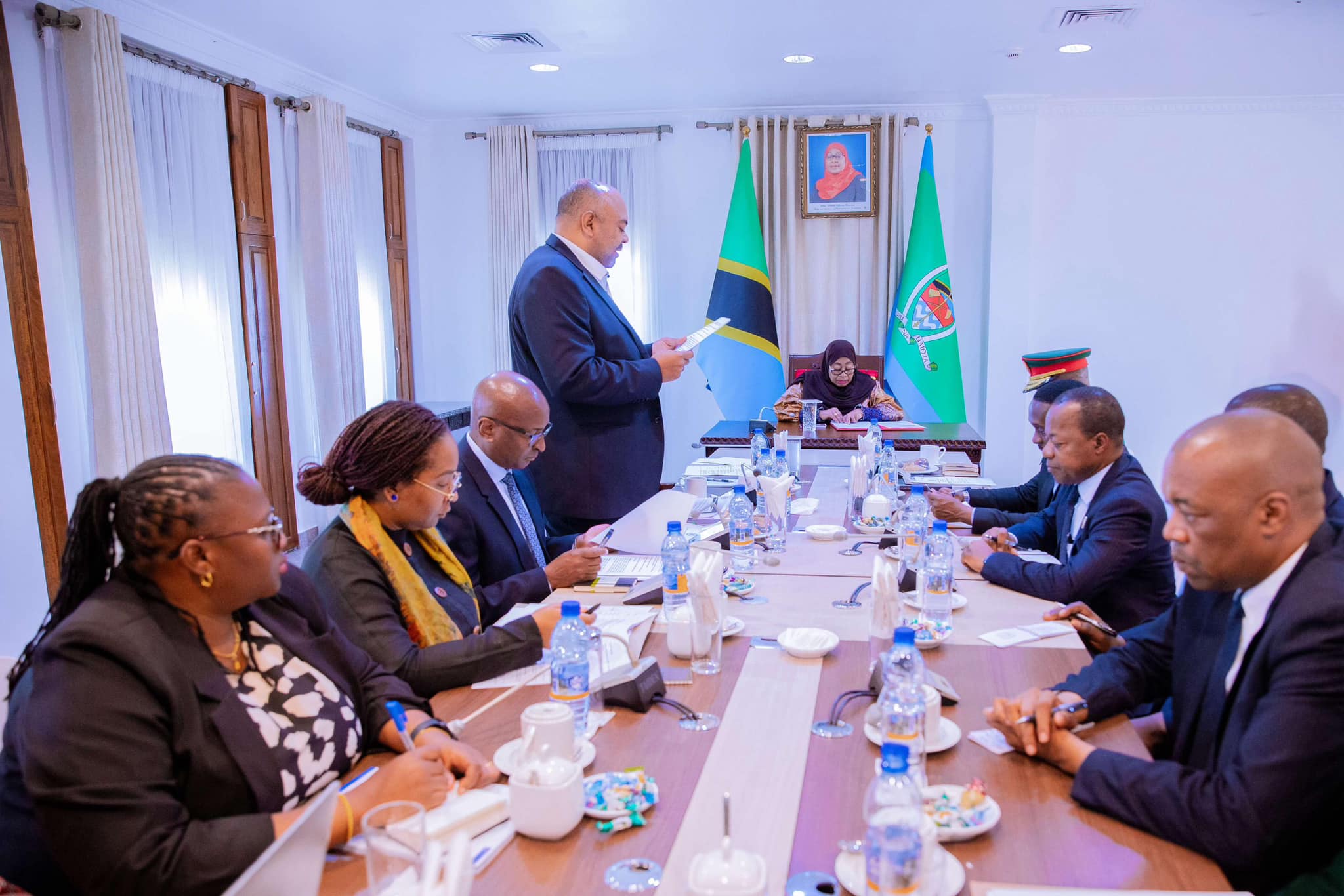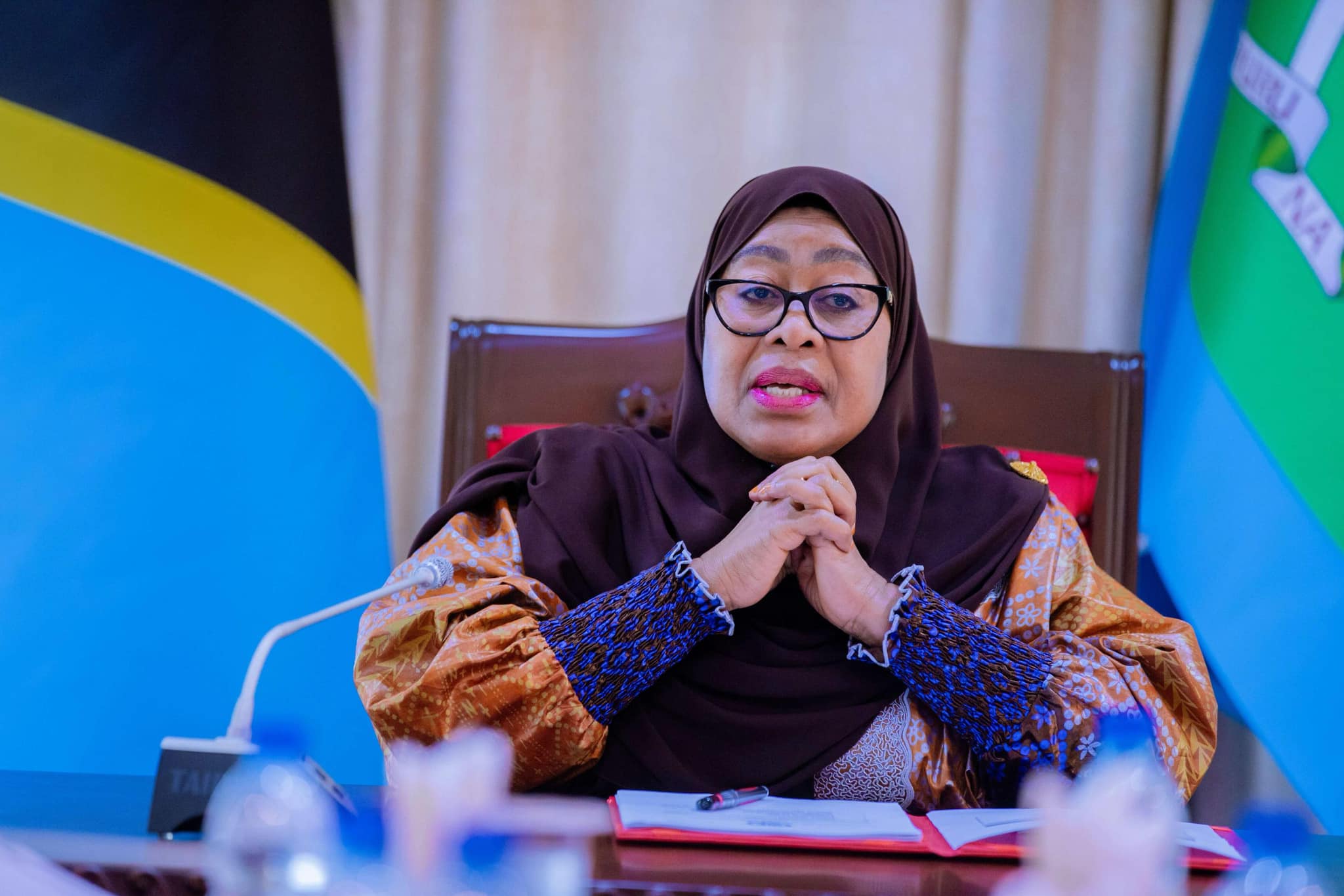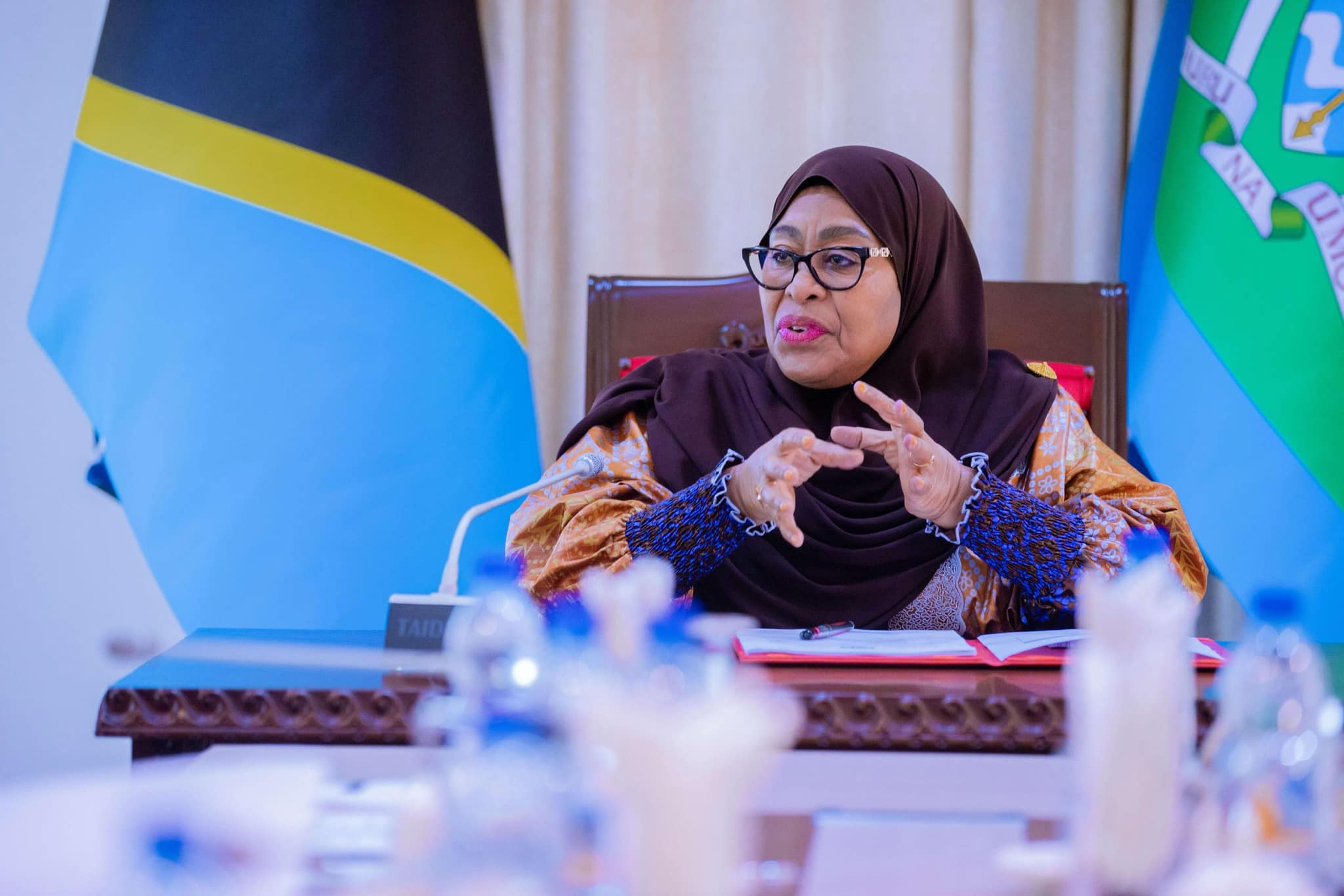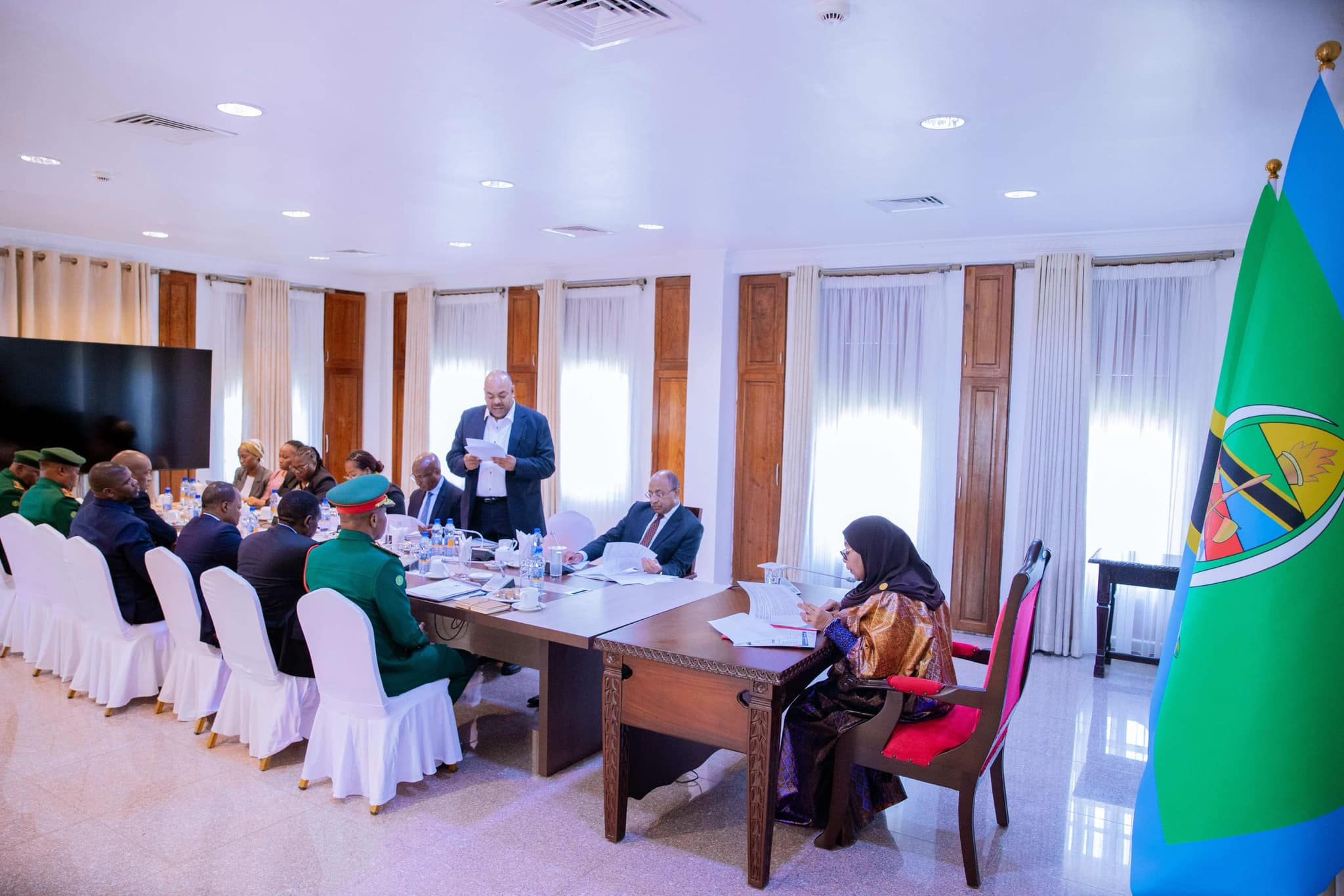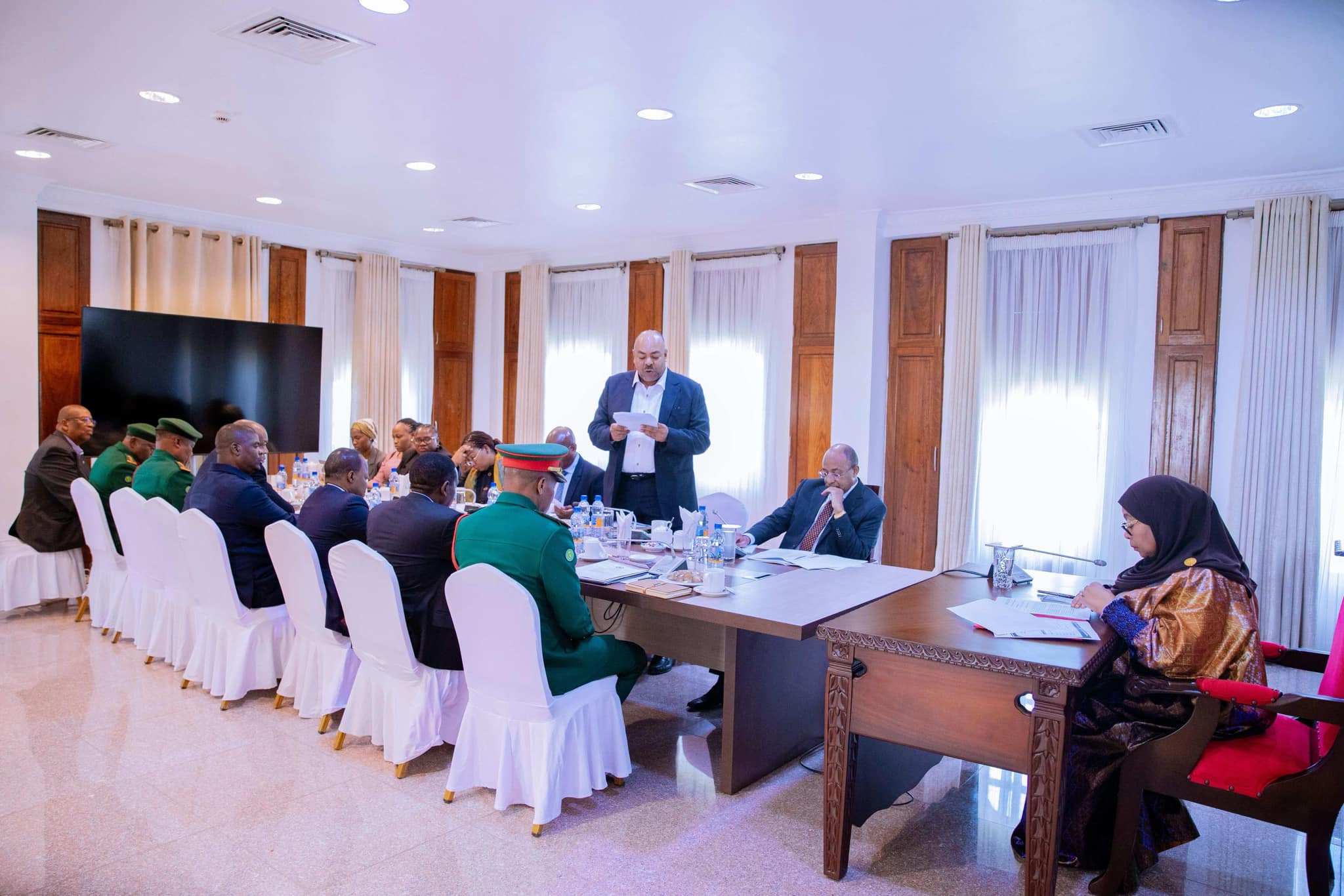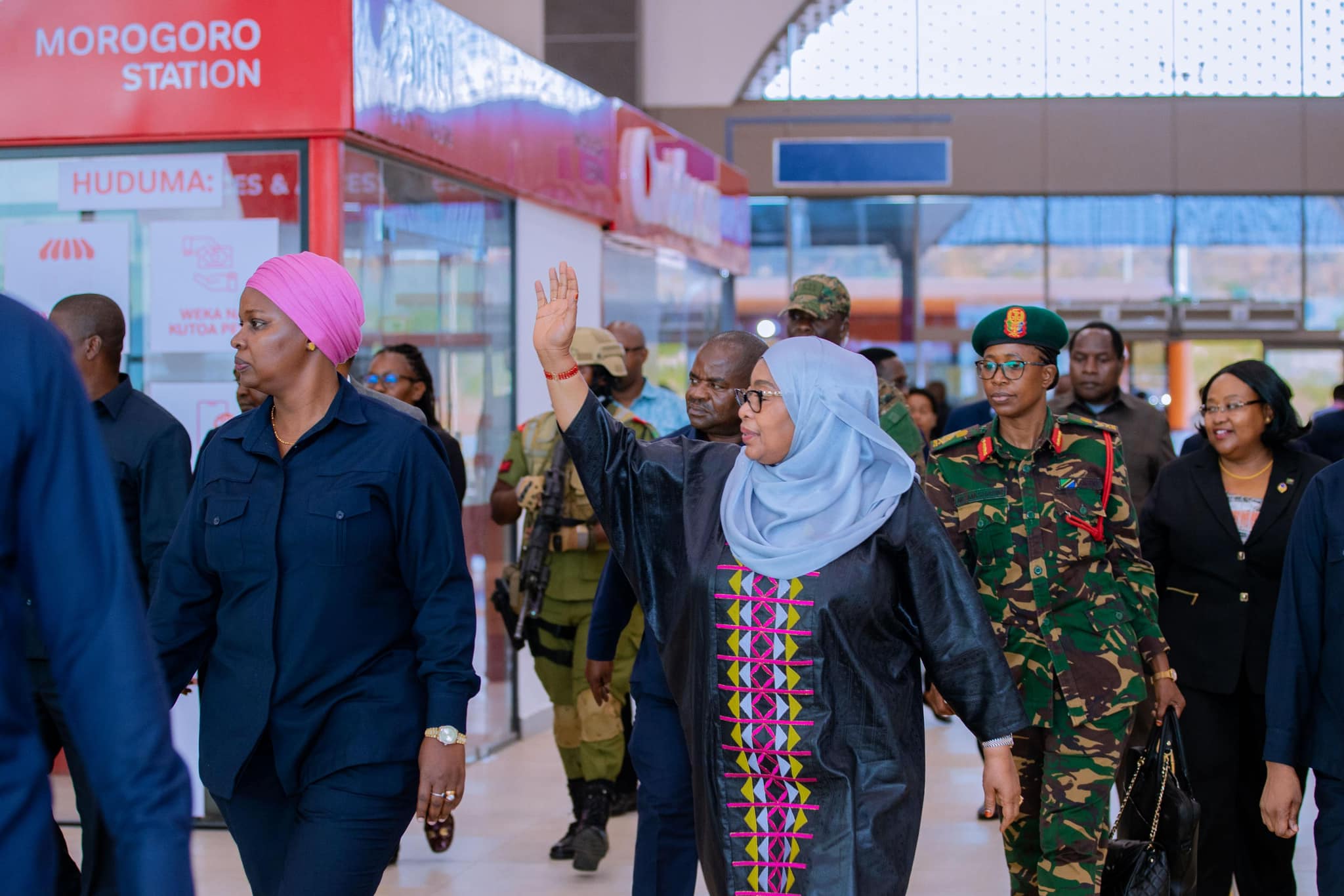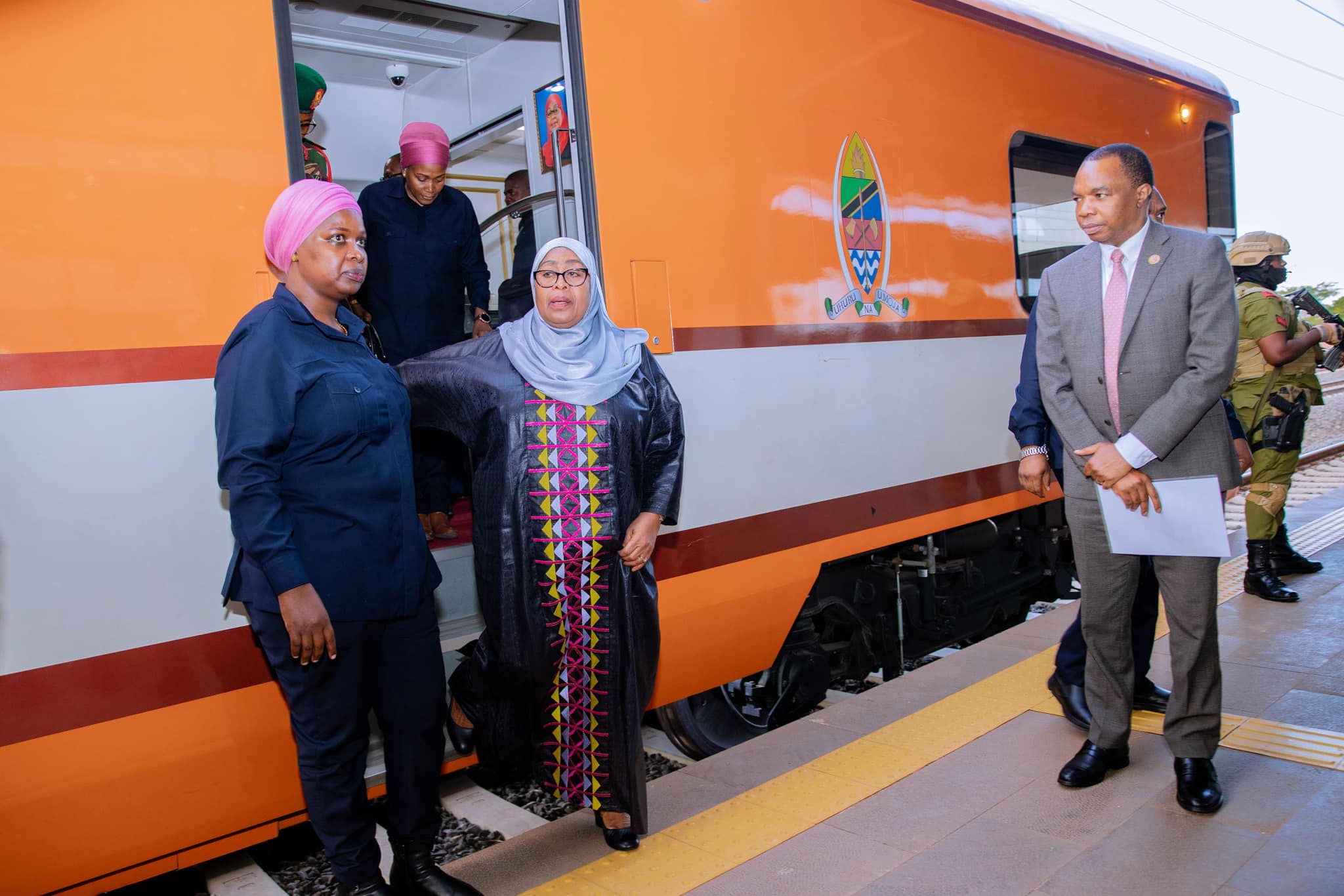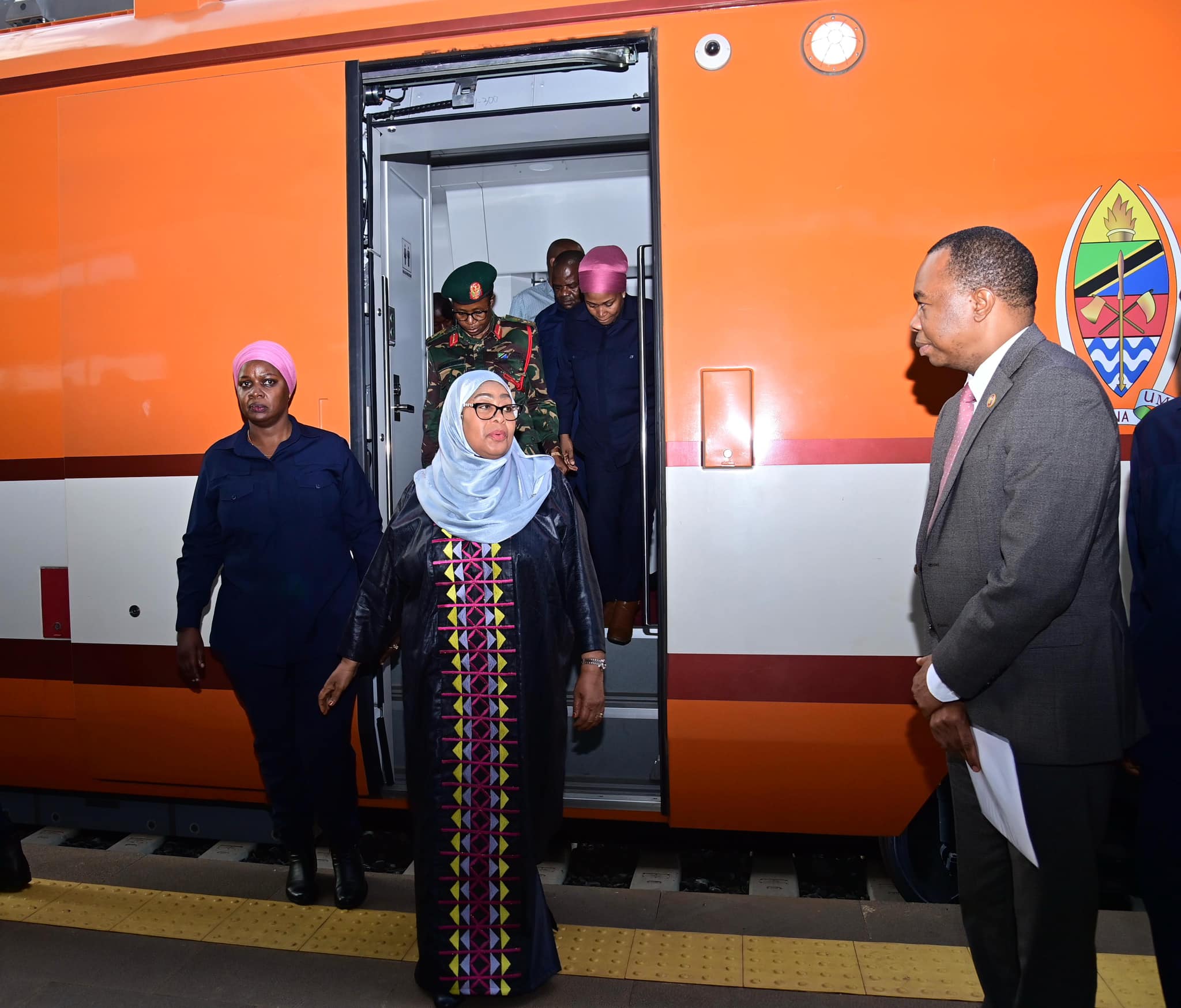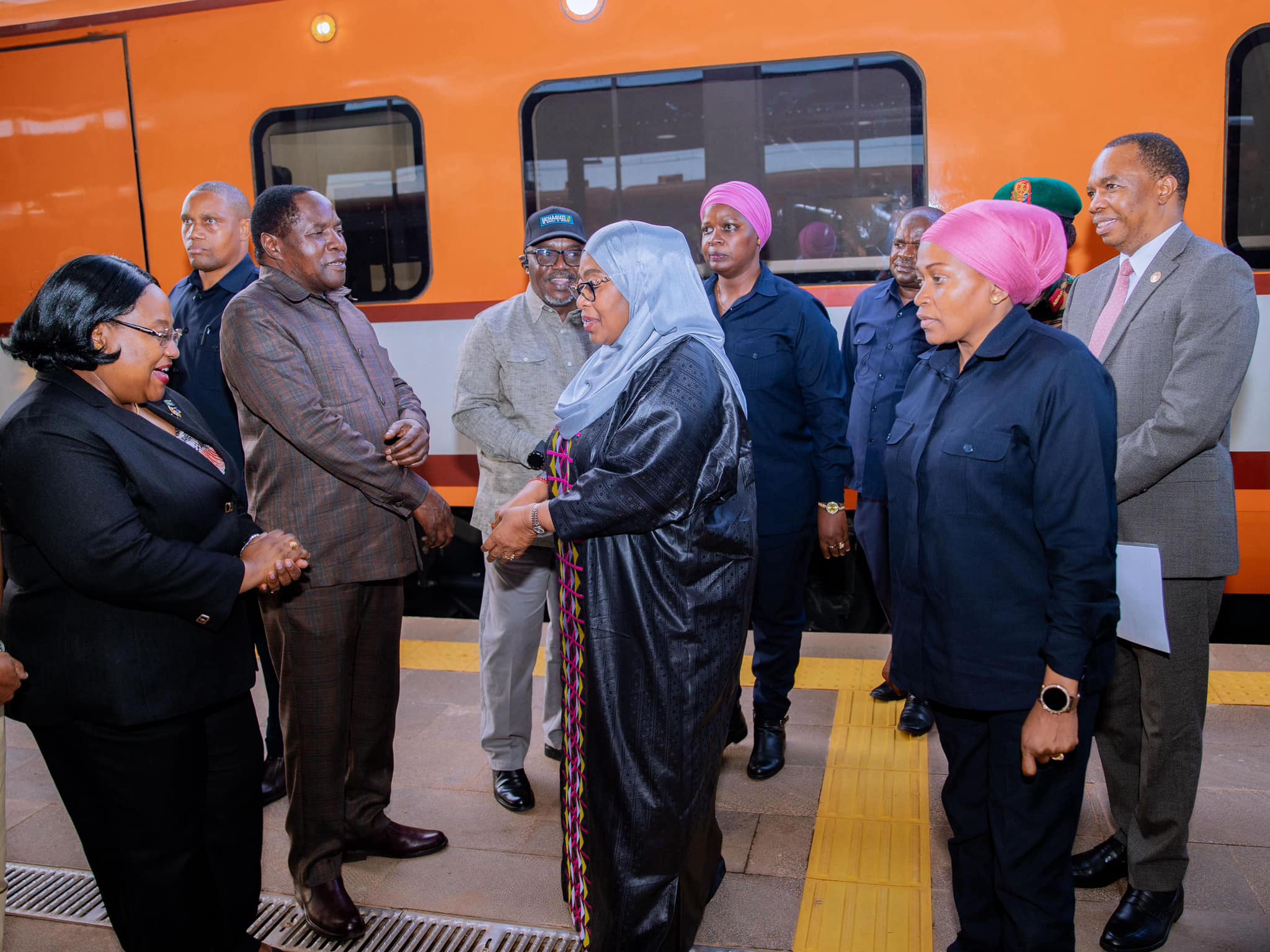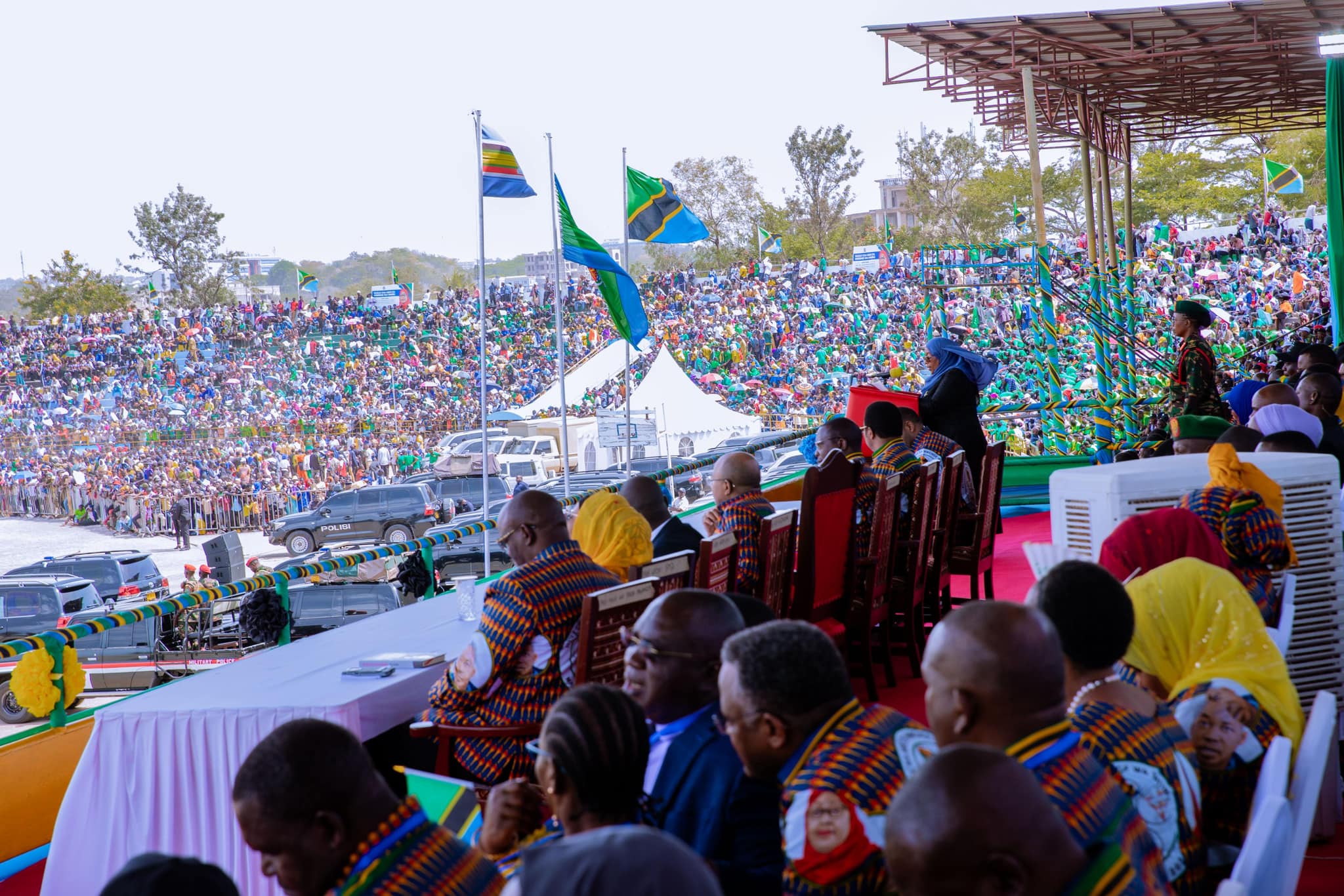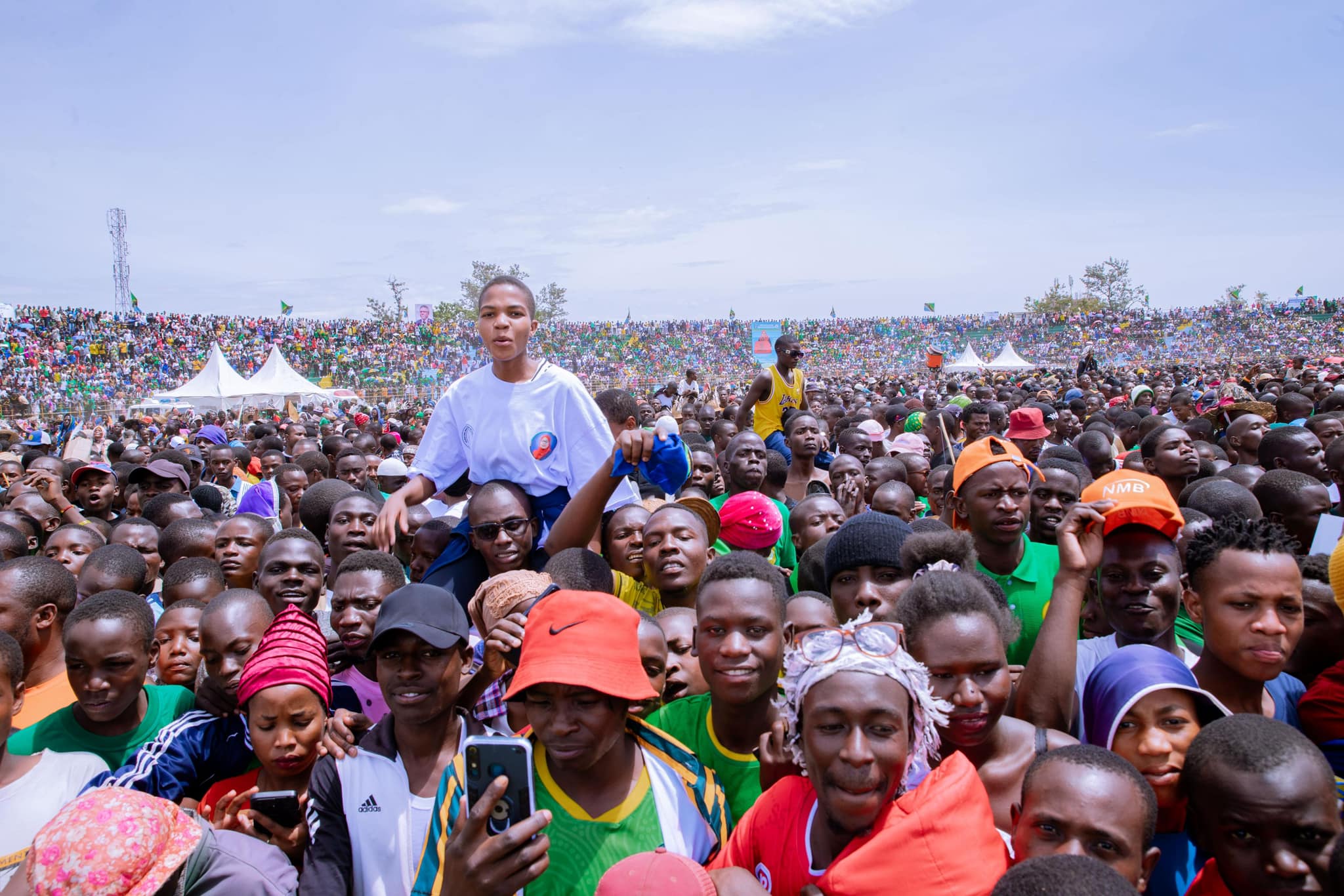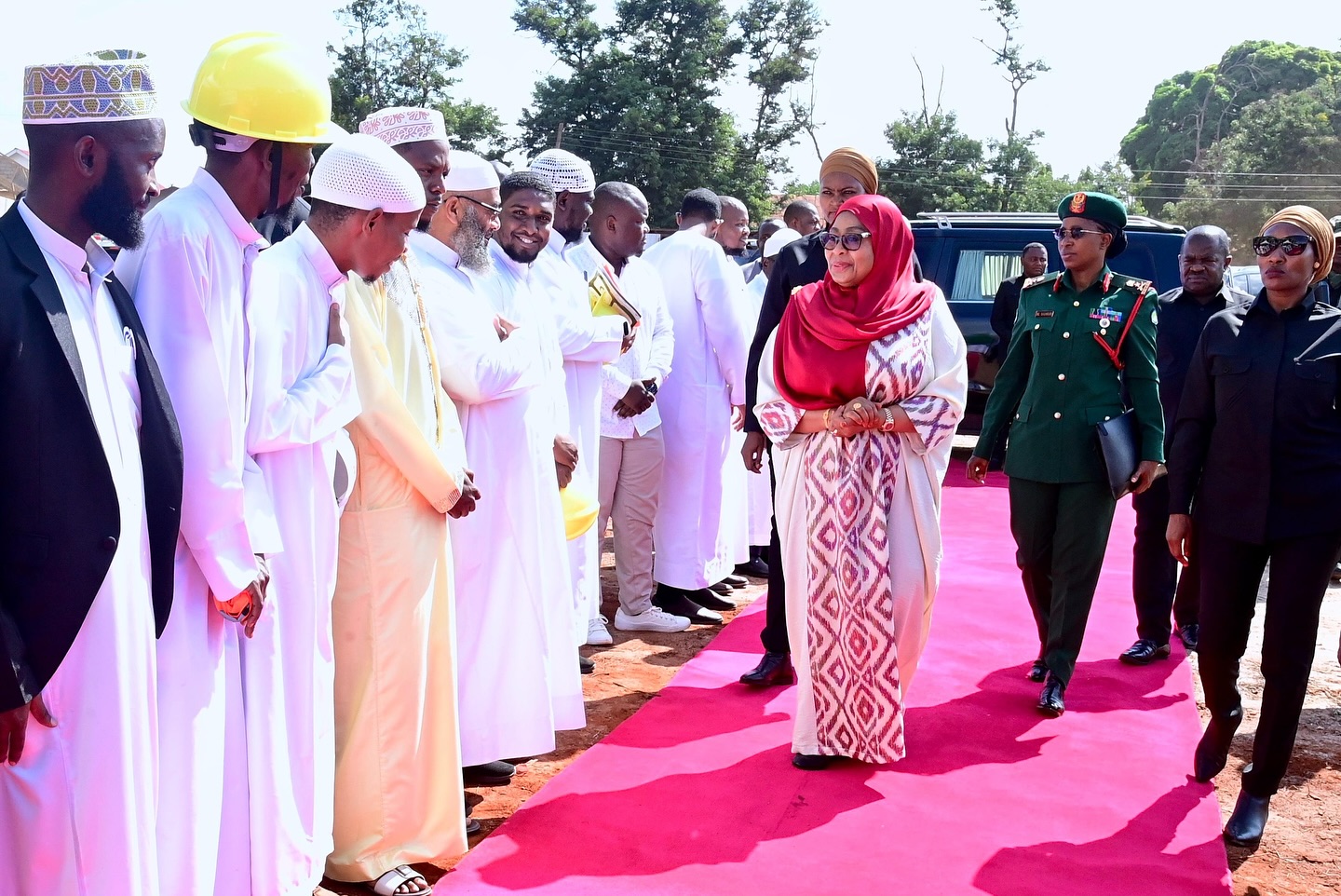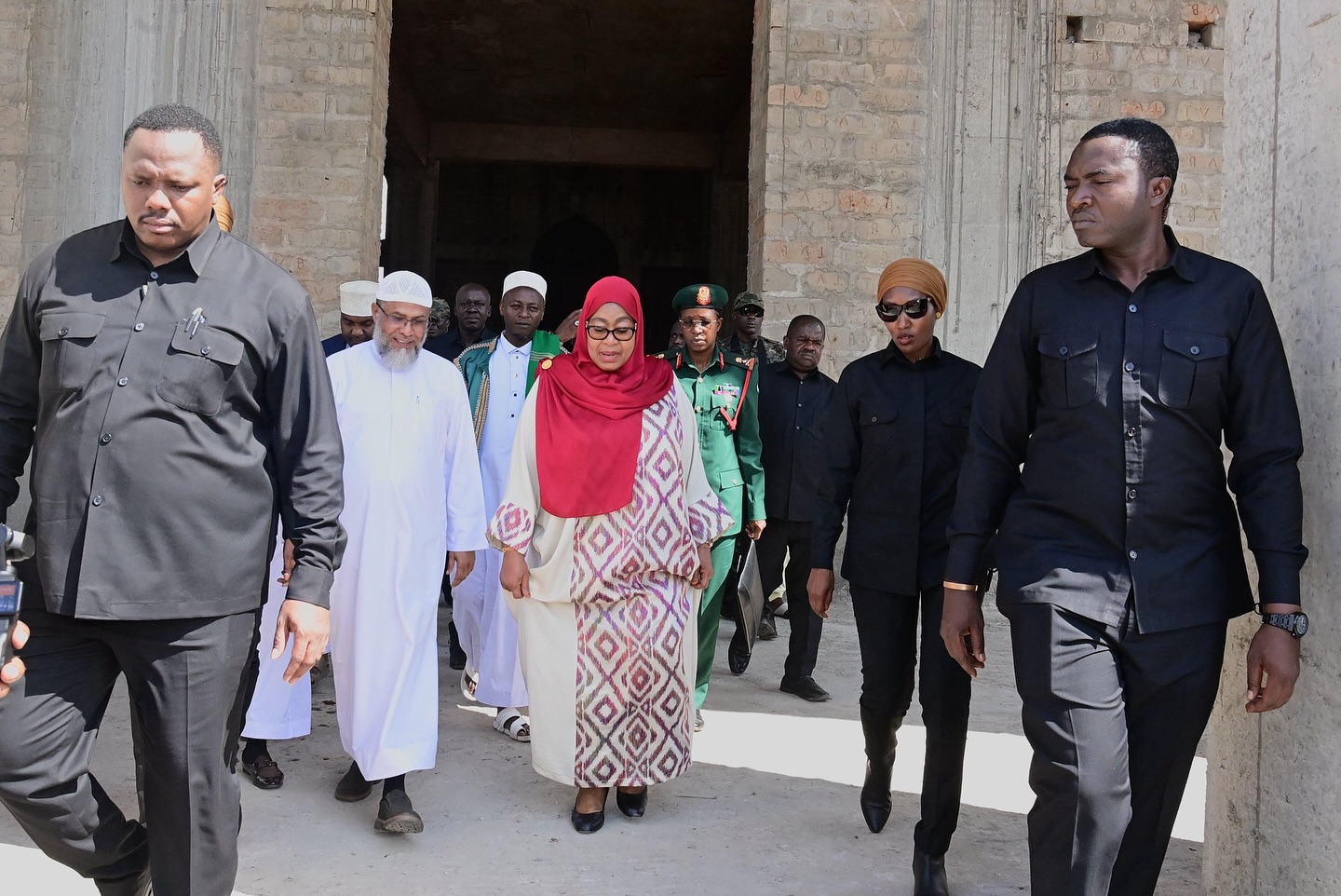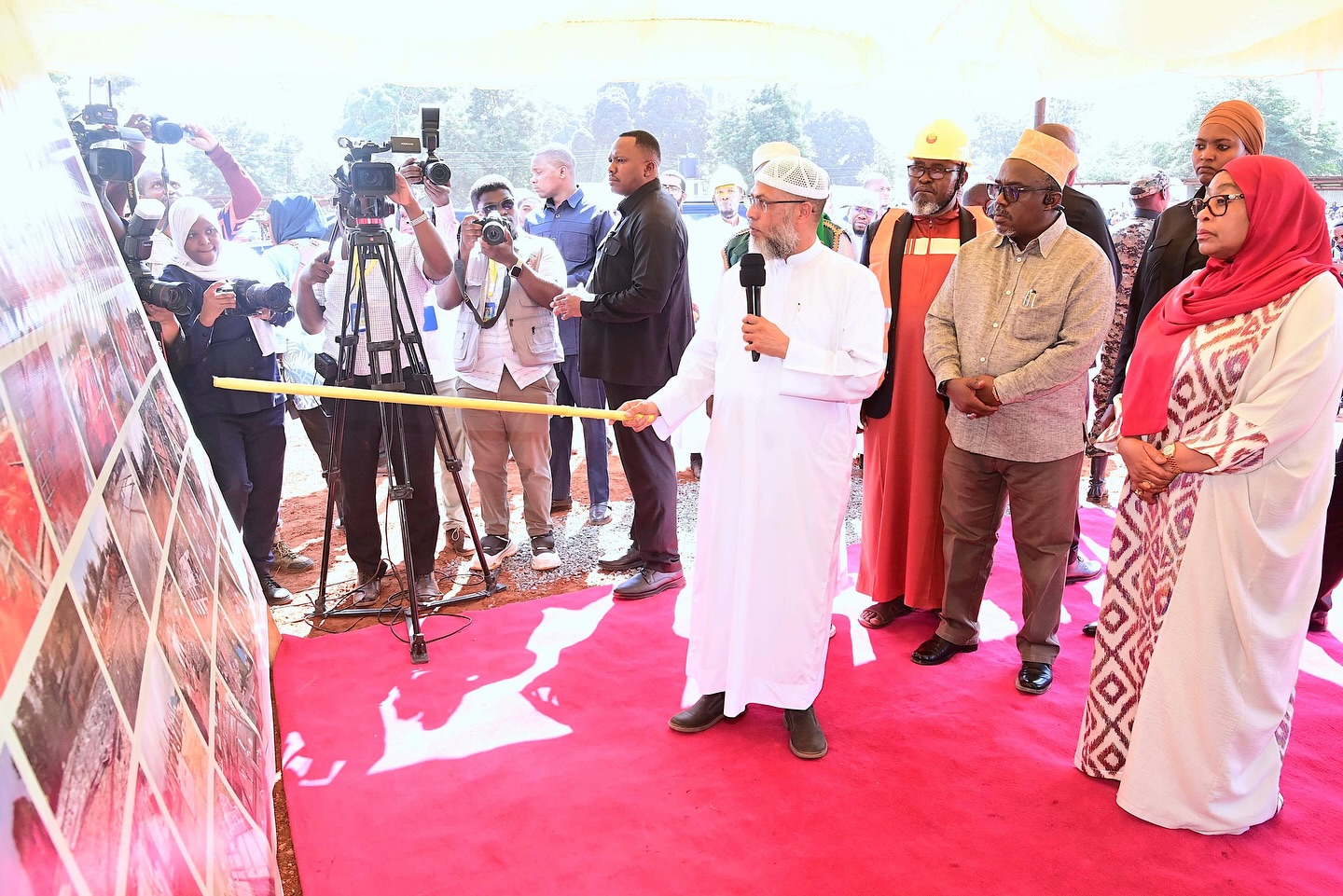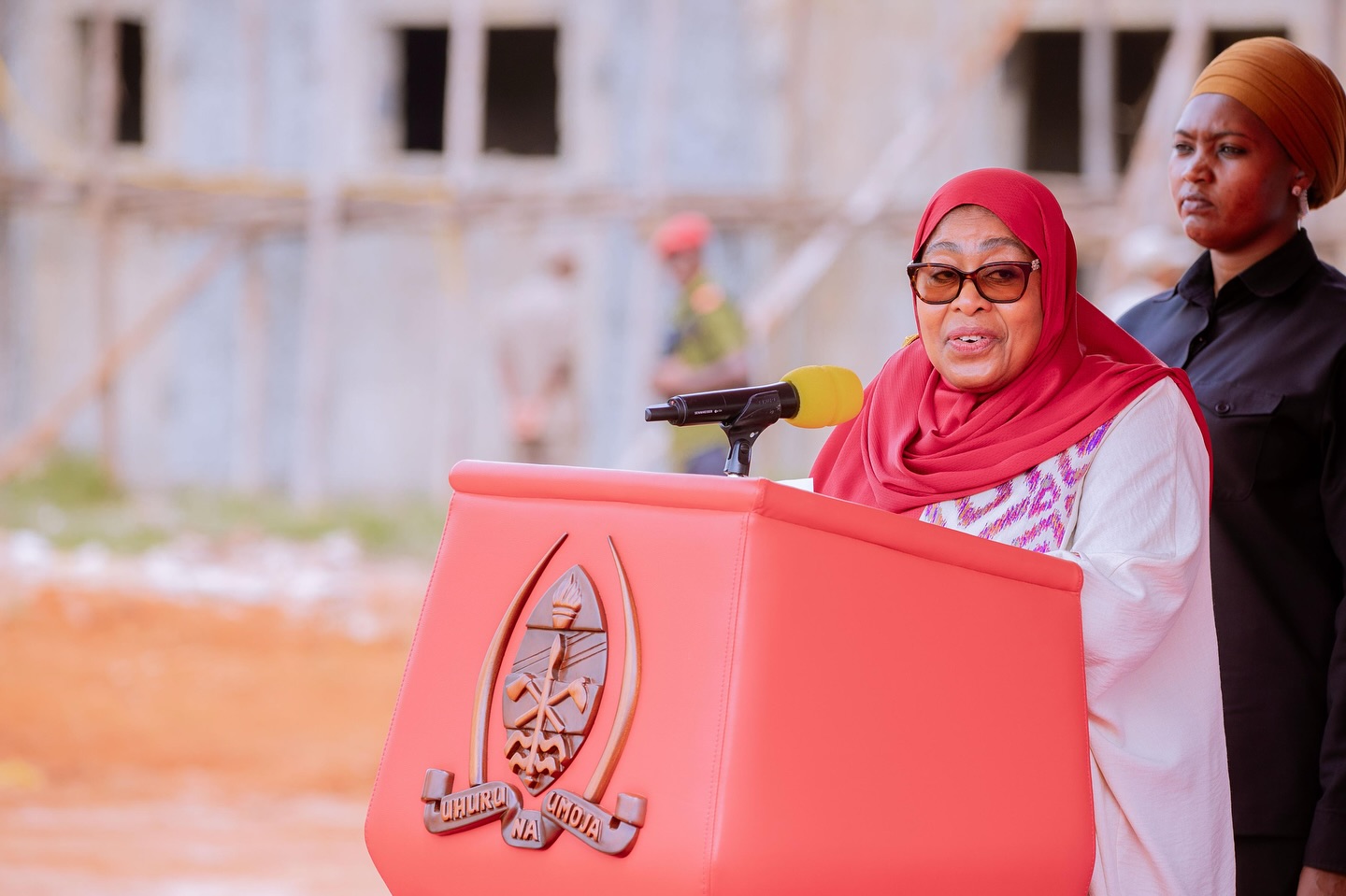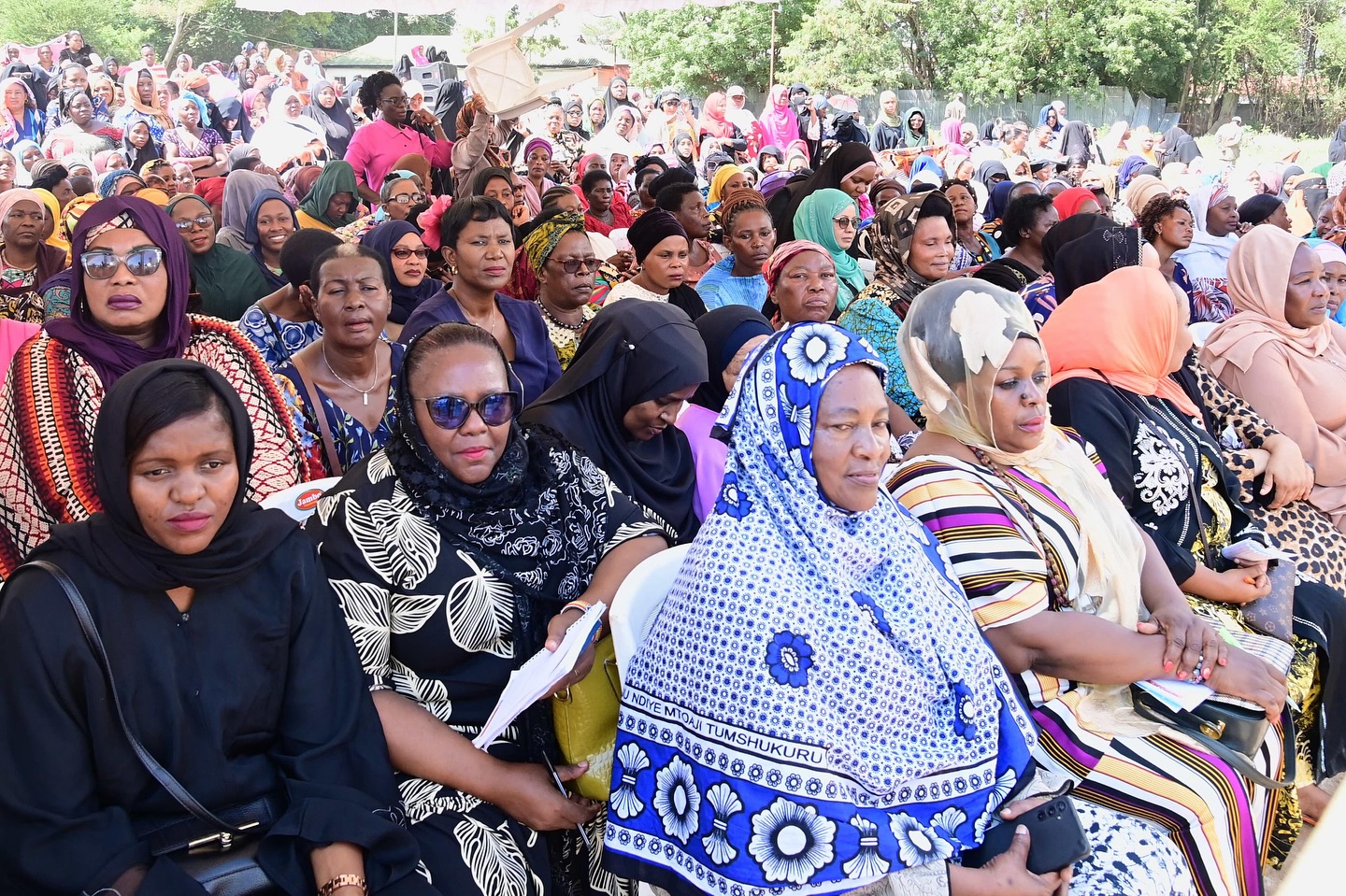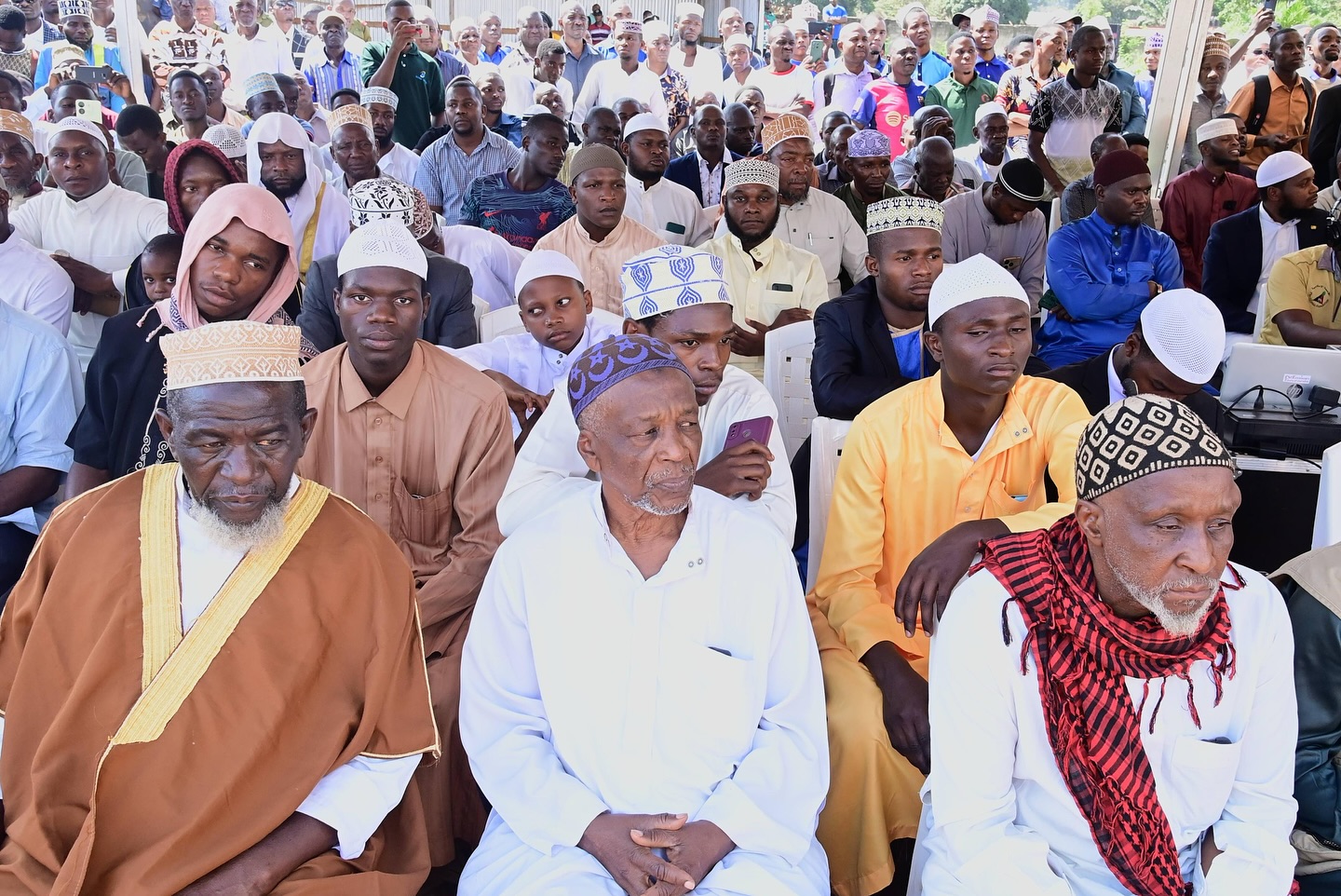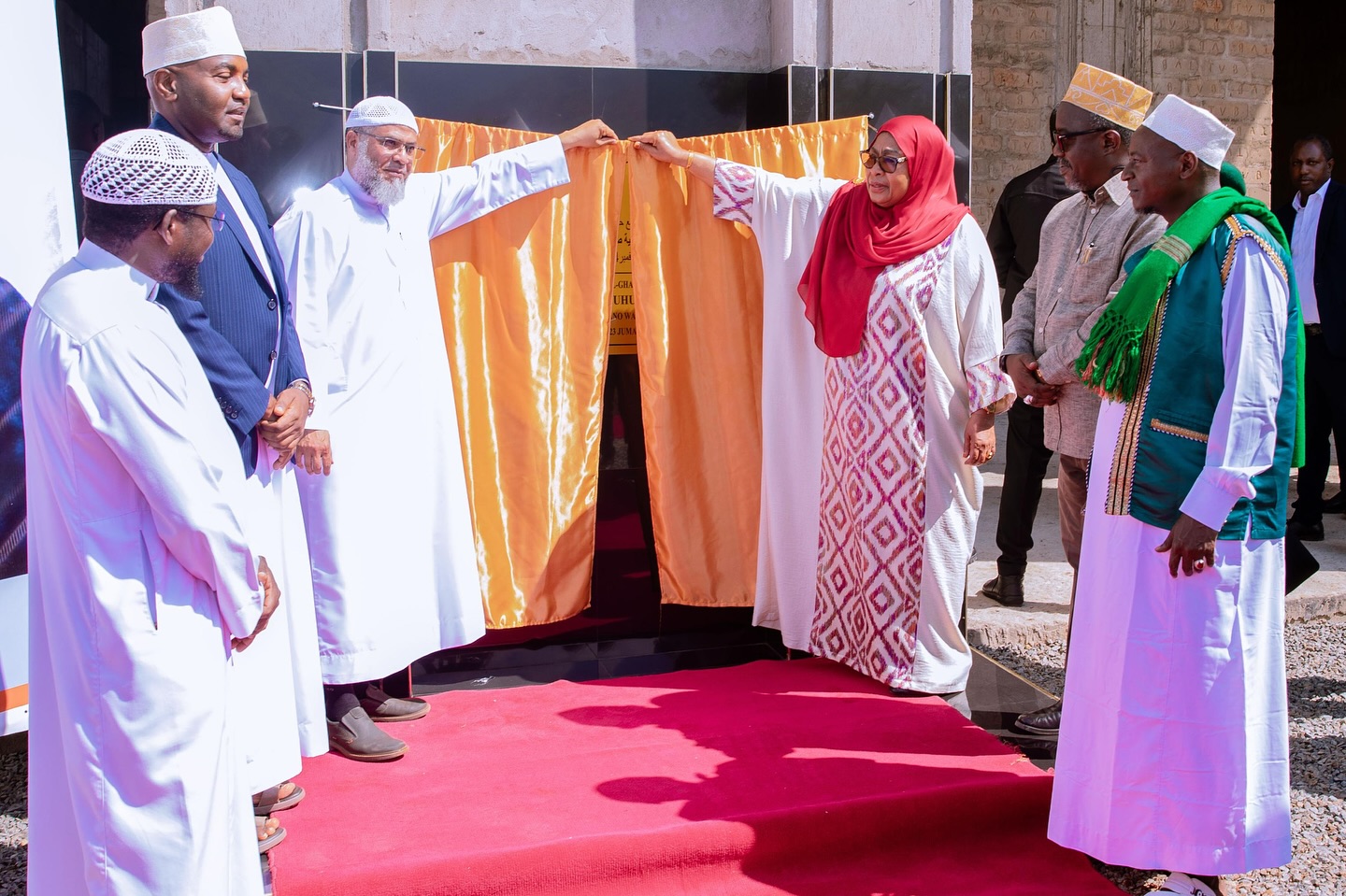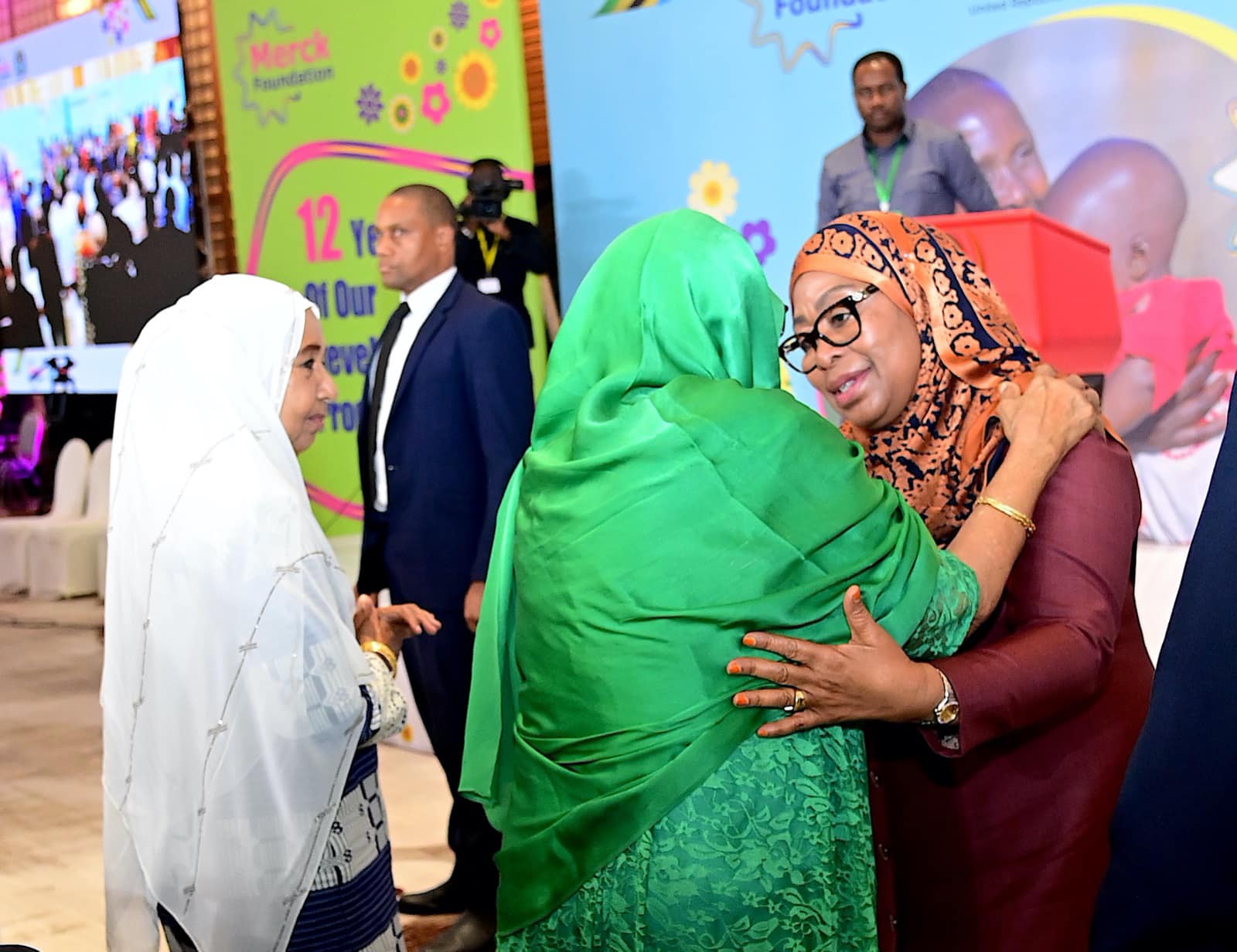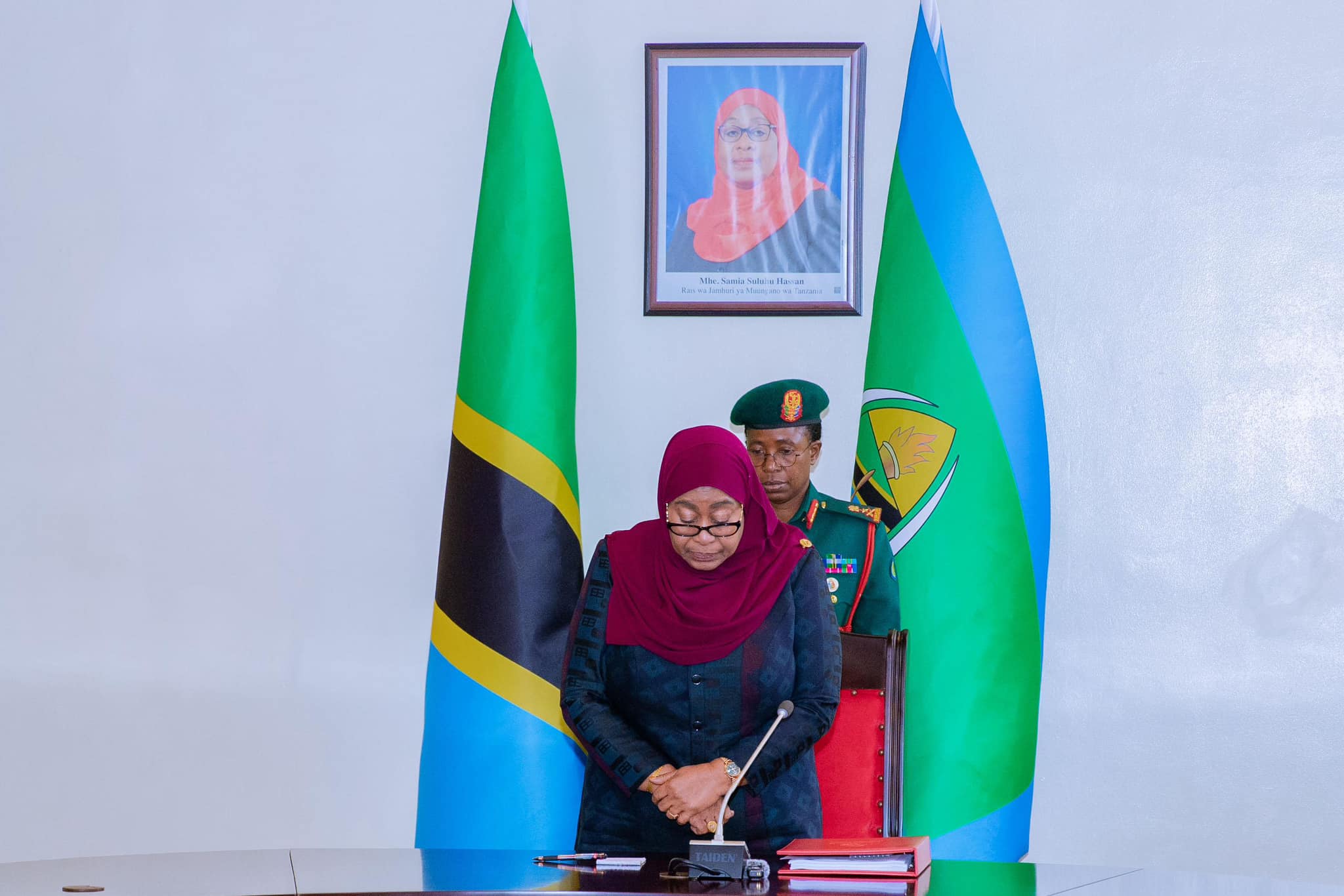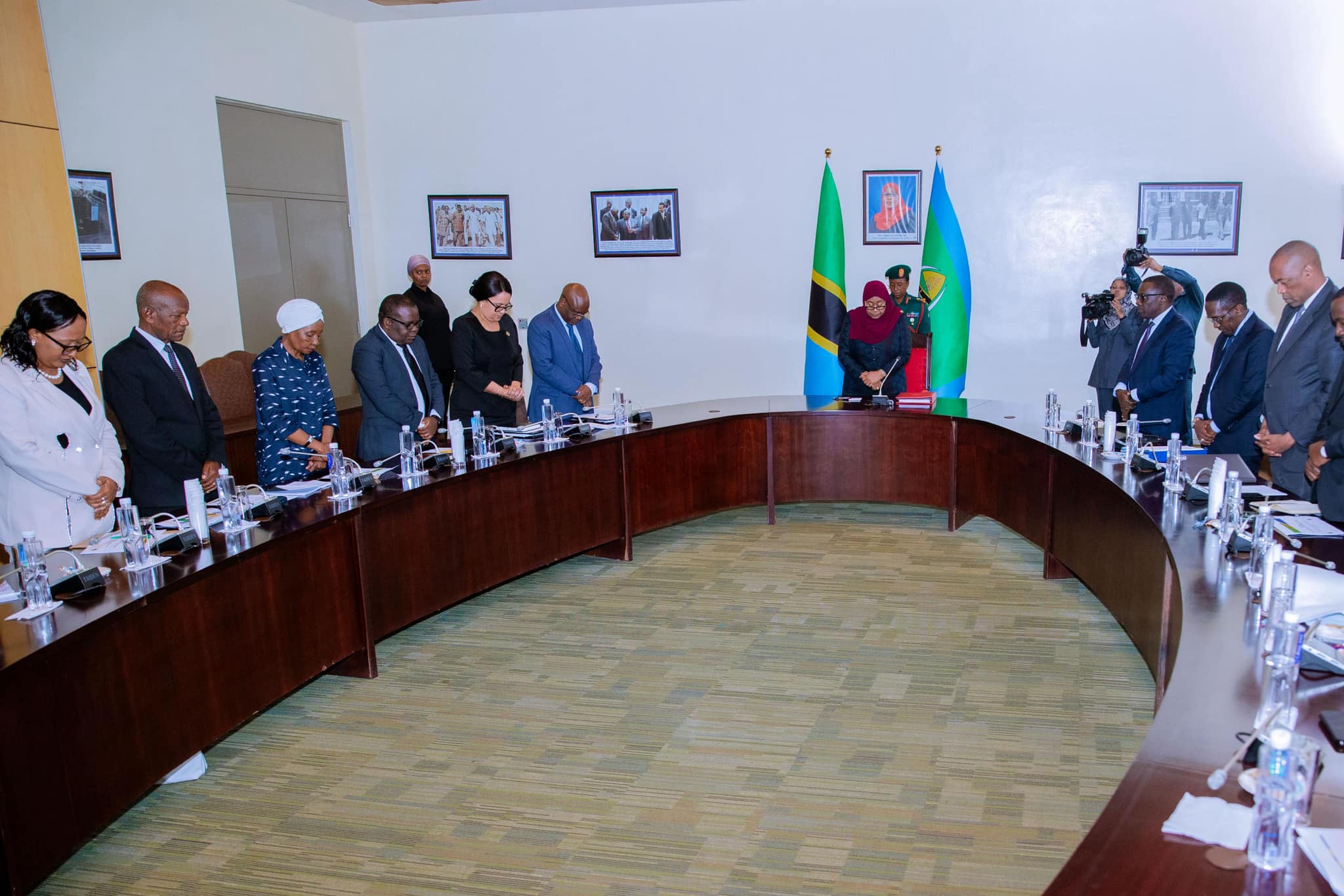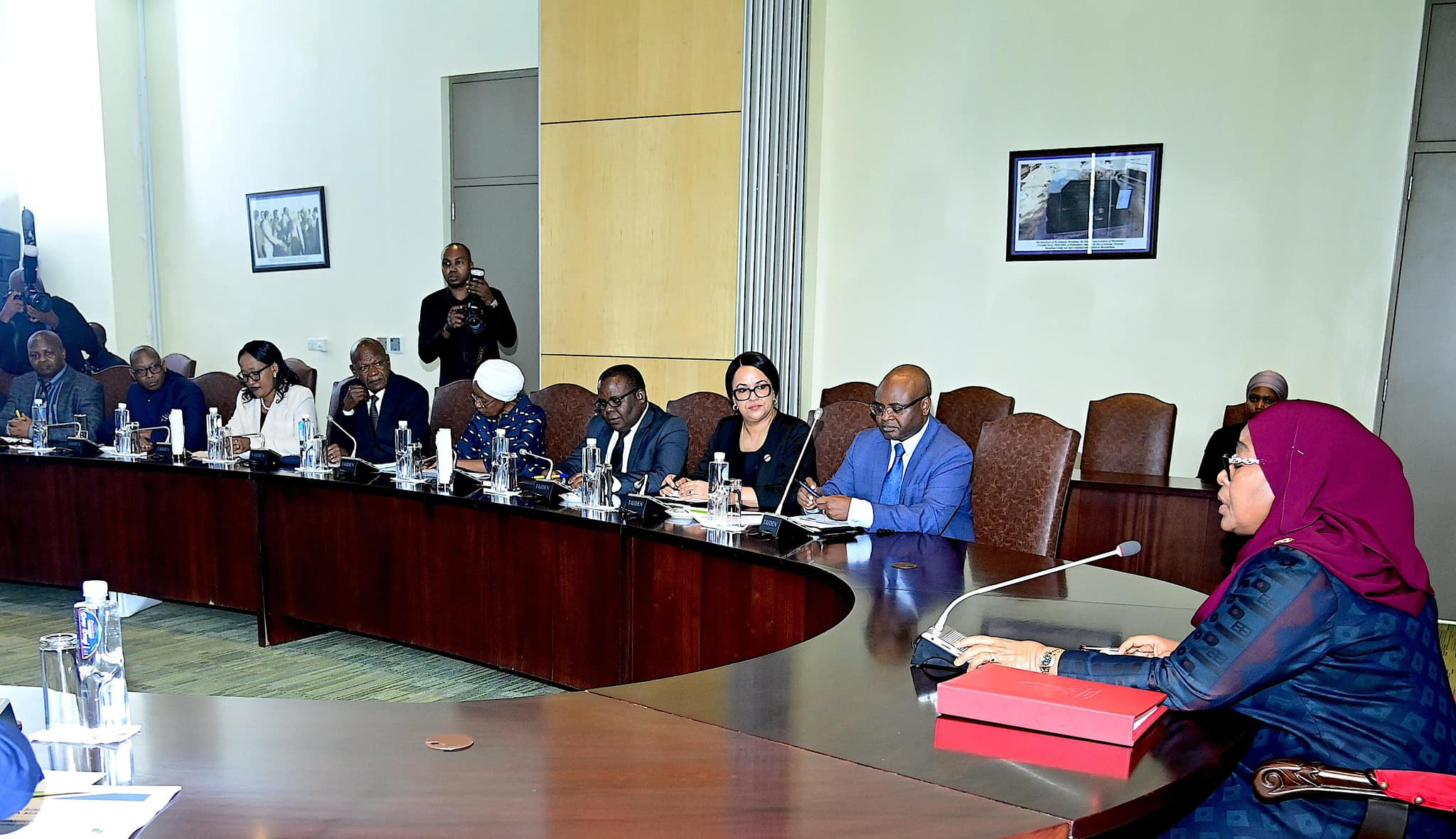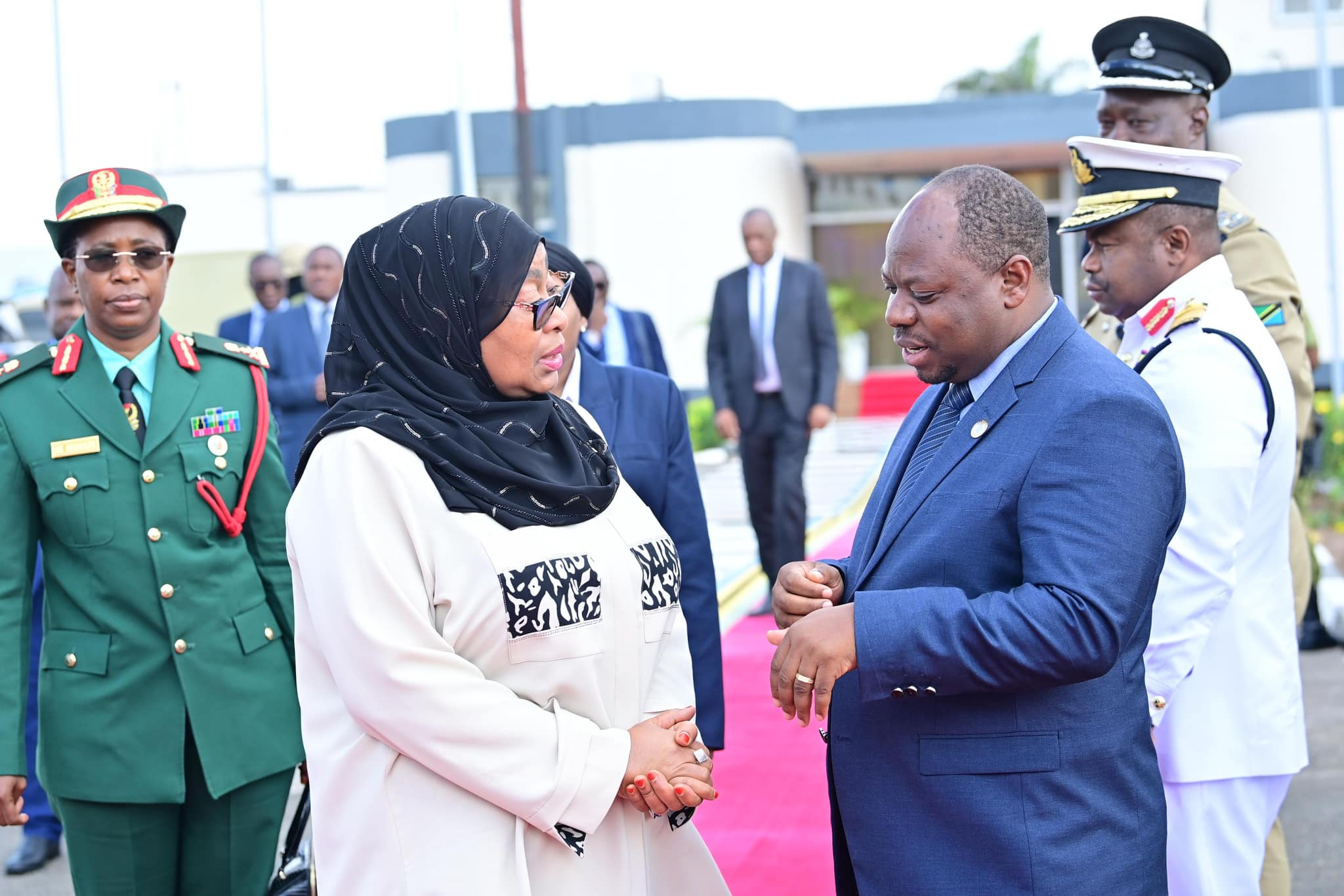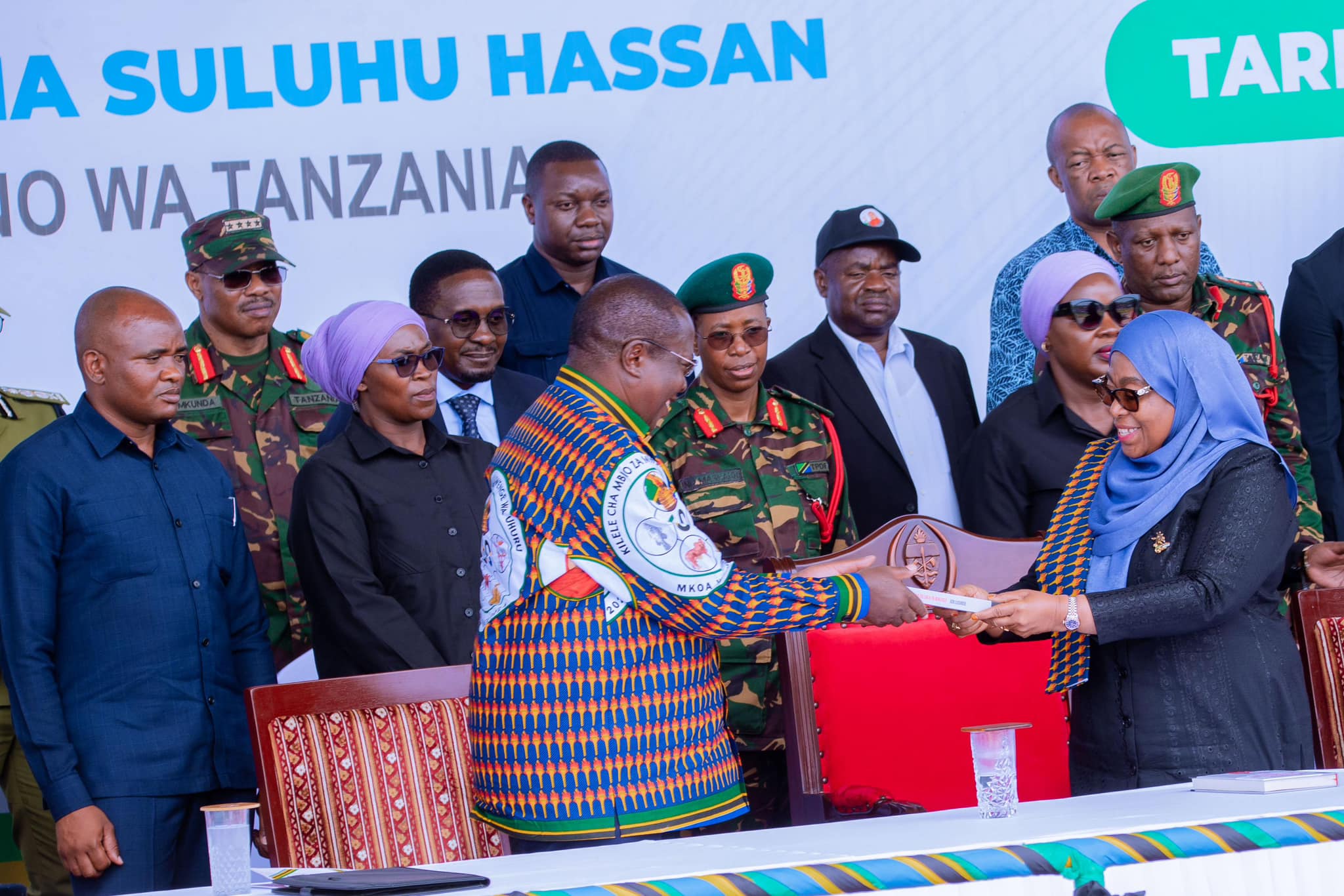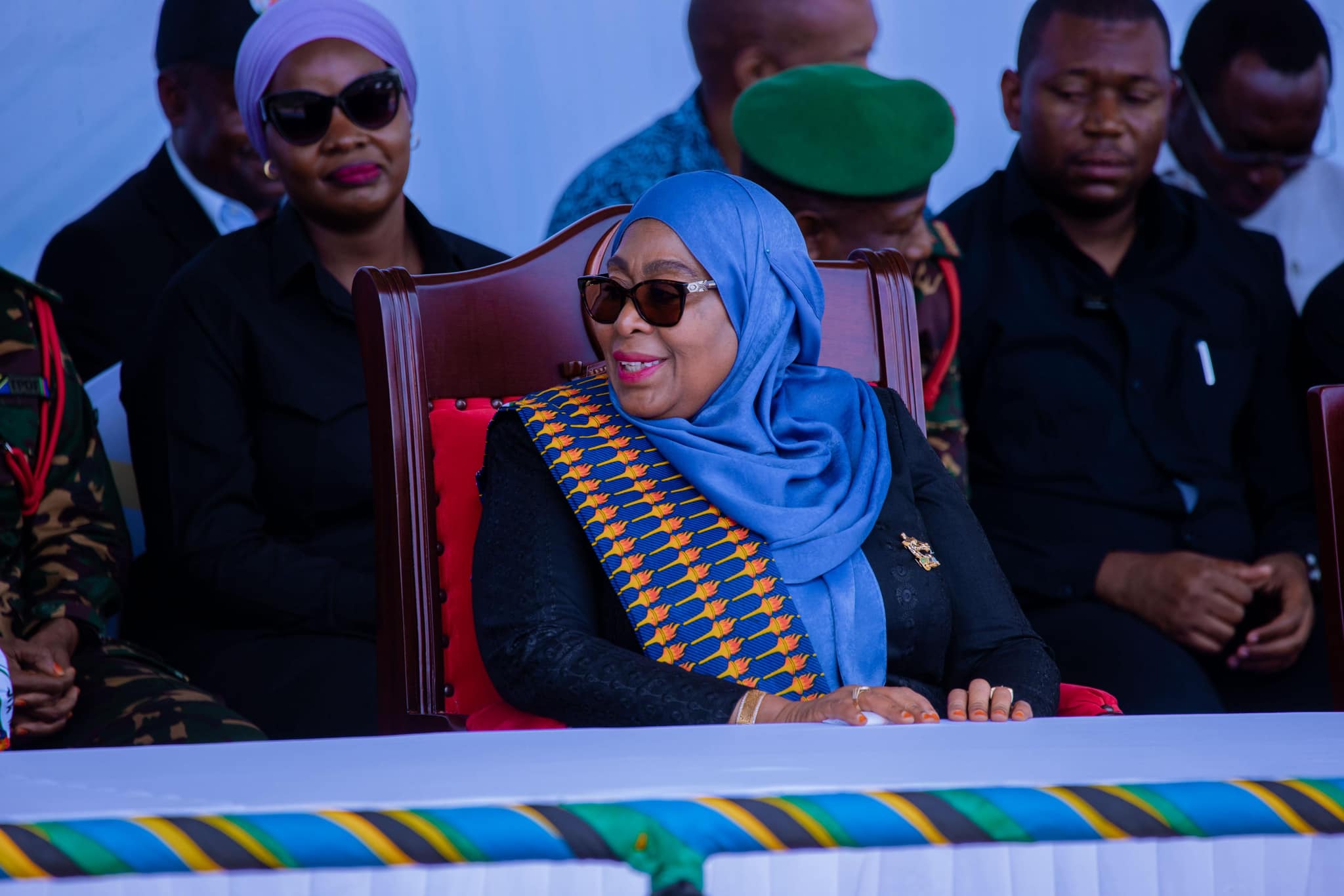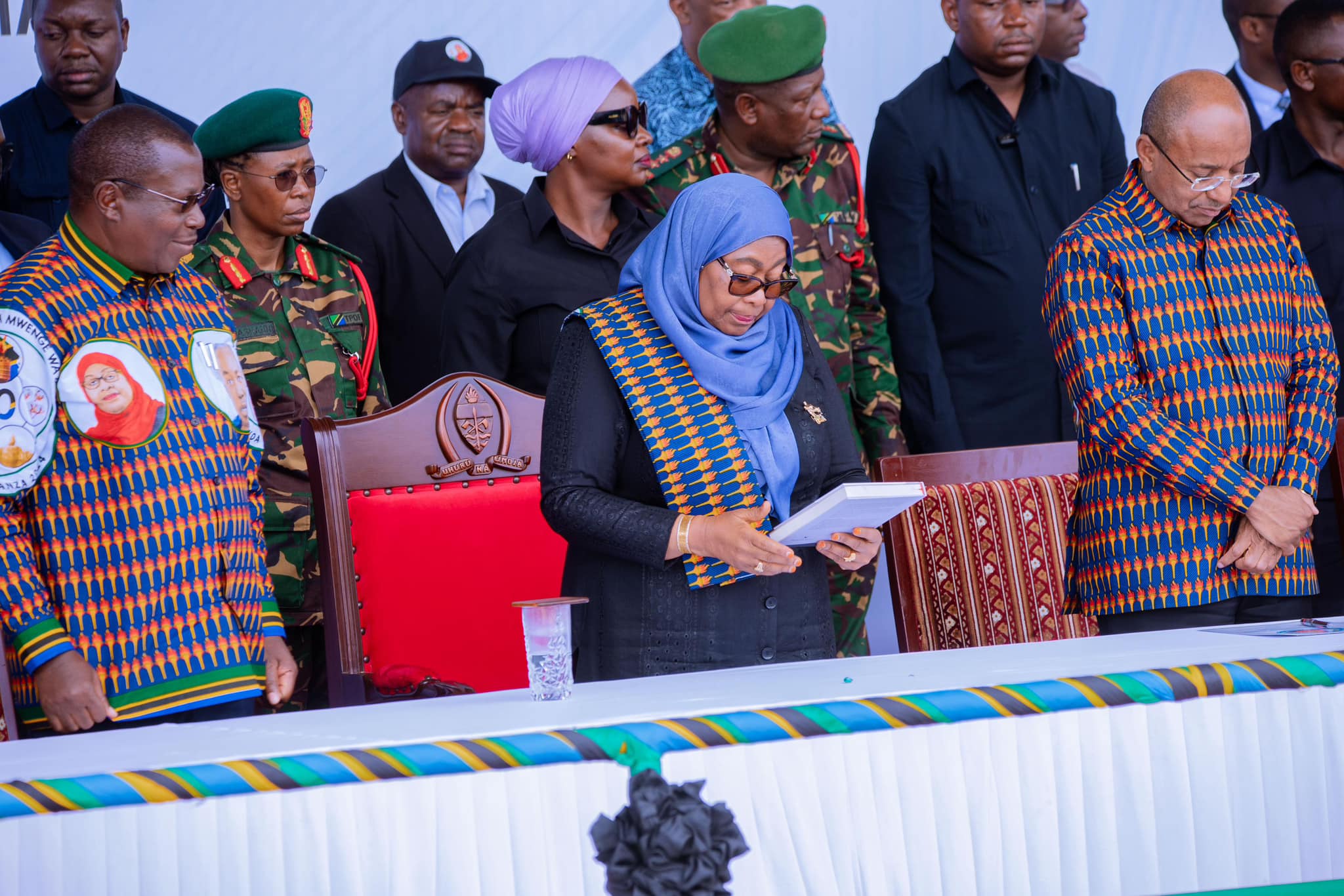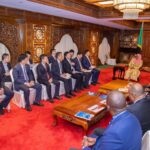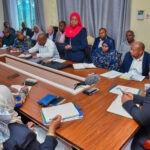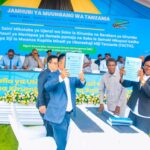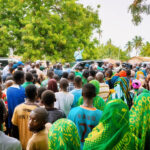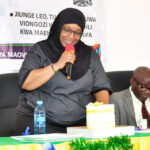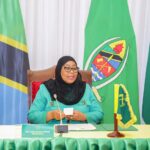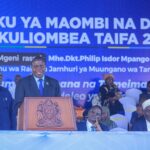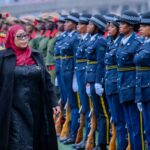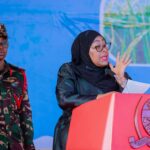Leadership Redefined: President Samia Suluhu Hassan’s Principles for the Modern Era
The landscape of leadership is undergoing a period of significant transformation, with President Dr. Samia Suluhu Hassan at the vanguard of this process in Tanzania. Her recent address and acceptance of an honorary doctorate in leadership from Mzumbe University have served to elucidate her guiding principles, which serve as a beacon for progressive governance.
President Dr. Samia Suluhu Hassan’s leadership is indeed effecting a significant transformation of the political and social landscape of Tanzania. Her principles, frequently encapsulated in her 4Rs philosophy – Reconciliation, Resilience, Reforms, and Rebuilding – are pivotal to her vision for the nation.
Reconciliation
President Samia has placed a significant emphasis on the process of reconciliation, with the objective of establishing a unified national identity. This encompasses the cultivation of discourse between political parties, civil society, and the media.
Her contributions have been instrumental in mitigating political tensions and advancing a more inclusive governance paradigm.
Resilience
In the context of significant challenges, including the global pandemic and natural disasters, President Samia has demonstrated resilience and fortitude. The administration has placed a premium on public health measures, including vaccination campaigns and international collaboration, in order to effectively manage the pandemic. Furthermore, her emphasis on disaster preparedness and response has enhanced Tanzania’s capacity to address environmental challenges.
Reforms
President Samia’s dedication to reform is clearly discernible in her approach to governance and economic policy. She has initiated substantial reforms with the objective of enhancing transparency, accountability, and efficiency within the government apparatus. The objective of these reforms is to attract international investment and foster sustainable economic growth.
Rebuilding
The reconstruction of damaged infrastructure and the restoration of communities are central tenets of President Samia’s approach to leadership. This principle encompasses not only the development of physical infrastructure but also the restoration of trust in public institutions.
The current administration is engaged in the implementation of significant infrastructure projects and the enhancement of public services, with the objective of ensuring long-term development and stability.
Empowerment and Ethical Leadership
In addition to the four Rs, President Samia promotes the empowerment of women and the importance of ethical leadership. Her ascension to the presidency has served as a potent symbol of gender equality, motivating women and girls throughout Tanzania. Additionally, she underscores the significance of ethical journalism and accountable media practices, acknowledging the media’s influence on national development and security.
President Samia Suluhu Hassan’s leadership principles are not merely theoretical; they are in fact actively influencing Tanzania’s trajectory towards a more resilient, inclusive and progressive future. Her approach serves as an exemplar for contemporary governance, striking a balance between tradition and innovation, as well as inclusivity.
Evidence-based decision-making constitutes a fundamental aspect of President Dr. Samia Suluhu Hassan’s approach to leadership. This approach guarantees that policies and strategies are based on reliable data and objective analysis, rather than assumptions or unverified information. The following section will outline the key aspects of how this method has been applied in the context of the President’s administration:
Navigating the COVID-19 Pandemic
In formulating its response to the global pandemic caused by the SARS-CoV-2 virus, the administration of President Samia placed considerable reliance on scientific data and expert advice. This encompassed:
- Vaccination Campaigns: By analysing infection rates, vaccine efficacy, and public health data, the government was able to implement targeted vaccination campaigns, prioritising high-risk groups and regions with higher transmission rates.
- Public Health Measures: The decisions regarding the implementation of lockdowns, social distancing, and mask mandates were based on the analysis of epidemiological data, thereby ensuring that the measures taken were both effective and minimally disruptive.
- International Collaboration: By engaging with global health organisations and other countries, Tanzania was able to benefit from the sharing of research and resources, thereby enhancing its capacity to manage the pandemic.
Addressing Economic Challenges
In the context of global economic turbulence, President Samia’s evidence-based approach has been instrumental in stabilising and fostering economic growth in Tanzania:
- Economic Reforms: The application of data-driven analysis to economic performance indicators has informed the design of reforms aimed at enhancing fiscal management, reducing corruption, and improving the business environment.
- Investment Strategies: By analysing market trends and investment flows, the administration has been able to attract foreign direct investment and provide support to local industries, thereby fostering sustainable economic growth.
- Social Programs: The implementation of targeted social programmes, such as poverty alleviation initiatives and educational reforms, has been informed by evidence-based assessments of social needs. These programmes have been designed with the objective of having the maximum positive impact on the population.
Environmental and Infrastructure Development
Furthermore, President Samia’s administration employs evidence-based decision-making to address environmental and infrastructure challenges:
- Climate Resilience: By analysing climate data and environmental impact studies, the government has developed strategies to mitigate the effects of climate change and enhance disaster preparedness.
- Infrastructure Projects: The collation and analysis of data pertaining to population growth, urbanisation trends and economic activity facilitate the planning and implementation of infrastructure projects, thereby ensuring that they meet both current and future needs.
Enhancing Governance and Transparency
In order to enhance the quality of governance, President Samia has introduced a series of measures that are based on empirical evidence concerning the performance of the government and the opinions of the general public:
- Transparency Initiatives: The implementation of regular audits and performance reviews based on factual data is an effective method for identifying areas for improvement and ensuring accountability within government institutions.
- Public Engagement: The utilisation of surveys and public consultations enables the acquisition of invaluable insights into the needs and opinions of citizens, thereby facilitating the formulation of policy decisions that are more aligned with the public interest.
By prioritising evidence-based decision-making, President Samia Suluhu Hassan has been able to effectively navigate complex challenges, ensuring that her administration’s strategies are both responsive and impactful. This approach serves to enhance the credibility of her leadership, whilst simultaneously facilitating the establishment of public trust in the government’s capacity to address the nation’s needs.
President Dr. Samia Suluhu Hassan’s emphasis on stakeholder engagement is illustrative of her leadership style, which is defined by a commitment to inclusivity and participation. The following section will present the principal elements of her implementation strategy:
Inclusive Dialogue and Collaboration
In order to facilitate dialogue and collaboration among a diverse range of stakeholders, President Samia has established a series of forums and initiatives:
- Political Parties: By engaging with opposition parties and fostering a culture of political tolerance, she has sought to create a more harmonious political environment. This has entailed the regular convening of consultations and the incorporation of a multiplicity of political perspectives into the decision-making process.
- Civil Society: In acknowledgement of the indispensable function of civil society organisations (CSOs) in the policy process, President Samia has advocated for their involvement in the formulation and implementation of policy. Such collaboration ensures that policies are informed by and responsive to the realities and needs of the population.
- Private Sector: It has been demonstrated that engagement with business leaders and industry representatives constitutes a vital component of economic development. By incorporating the insights of business leaders and addressing their concerns, the administration has been able to foster a more conducive environment for investment and growth.
- Local Communities: President Samia has identified the importance of grassroots engagement and has ensured that local communities are able to contribute to the development of projects that affect them. This has involved the convening of town hall meetings, public consultations, and participatory planning processes.
Reflecting the Collective Vision
The incorporation of a diverse array of perspectives has enabled President Samia to formulate policies that are more reflective of the collective vision of Tanzanians, thereby enhancing the legitimacy and accountability of the policy-making process. This approach offers a number of advantages, including:
- Enhanced Legitimacy: The legitimacy and effectiveness of policies are enhanced when they have been developed through inclusive processes, as this increases their acceptance and support from the public.
- Better Outcomes: The integration of disparate viewpoints can facilitate the development of more innovative and efficacious solutions, as they draw on a more expansive base of knowledge and experience.
- Social Cohesion: The implementation of inclusive decision-making processes has the effect of fostering a sense of ownership and belonging among citizens, which in turn contributes to the development of social cohesion and national unity.
Prioritizing National Interests
President Samia’s emphasis on national interests is evident in her administration’s agenda, which places a premium on the well-being of Tanzanians:
- Economic Development: The objective of economic growth policies is to benefit all citizens, with a particular focus on job creation, poverty reduction, and the equitable distribution of resources.
- Public Services: The advancement of access to quality education, healthcare, and social services represents a pivotal objective, with the aim of guaranteeing that all Tanzanians are presented with the opportunity to flourish.
- Infrastructure Development: The distribution of financial resources towards the development of infrastructure, which includes roadways, energy sources, and telecommunications networks, is driven by the objective of fostering enhanced connectivity and promoting sustainable growth.
Fostering Unity and Purpose
By aligning her governance model with the aspirations of the people, President Samia has fostered a sense of unity and purpose across the nation, thereby demonstrating an effective approach to leadership:
- National Identity: The promotion of a robust national identity and pride serves to unite citizens around a common set of goals and values.
- Collective Action: The encouragement of collective action and community involvement in national development projects serves to reinforce the social fabric and to empower citizens to make a contribution to the country’s progress.
The leadership of President Dr. Samia Suluhu Hassan is distinguished by its engagement with stakeholders and a focus on national interests. This approach is facilitating the emergence of a more inclusive, united, and prosperous Tanzania.
Her approach addresses both immediate challenges and the underlying causes of instability and growth, thereby laying the foundation for long-term stability and growth.
President Dr. Samia Suluhu Hassan’s approach to leadership is firmly anchored in the tenets of servant leadership, ethical governance, and a visionary outlook on Tanzania’s future. A detailed examination of these elements is provided below:
Servant Leadership and Ethical Governance
President Samia espouses a leadership style that places a premium on the provision of public service. She maintains that those in positions of leadership should:
- Build on Past Achievements: It is important to acknowledge and appreciate the achievements of previous administrations while simultaneously striving to innovate and address new challenges. This approach guarantees the continuity and stability of the governance structure.
- Innovate for the Future: It is imperative to adopt novel concepts and technological advancements in order to propel forward progress. By cultivating an environment conducive to innovation, leaders are better positioned to respond to the evolving needs of society.
- Emphasize Ethics and Integrity: It is imperative to adhere to the highest standards of ethical conduct and integrity. Such behaviour is characterised by transparency, accountability and a commitment to the public good. Those who exemplify these qualities are more likely to gain and maintain the trust of the people.
Vision for Higher Education
President Samia places considerable emphasis on the contribution of higher education to national development. Her vision encompasses the following key elements:
- Investment in Technology and Research: The allocation of additional financial resources to facilitate technological advancements and research initiatives within academic institutions. The objective of this investment is to:
- Empowering Graduates: The objective is to equip students with the requisite skills and knowledge to enable them to compete effectively in a global market. This encompasses the cultivation of critical thinking, problem-solving abilities, and technological proficiency.
- Driving Innovation: The promotion of research that can result in new discoveries and innovations is encouraged, as these can contribute to economic growth and societal well-being.
- Elevating Academic Institutions: The objective is to enhance the quality and reputation of Tanzania’s universities and colleges. This entails:
The enhancement of infrastructure is a key objective. The implementation of measures designed to enhance the quality of learning environments, including the upgrading of facilities and resources.- Attracting Talent: The objective is to recruit and retain the highest calibre educators and researchers in order to guarantee the highest standards of teaching and research.
- International Collaboration: The formation of collaborative relationships with international institutions is a key objective, facilitating the exchange of knowledge, resources and best practices.
Nurturing Intellectual Capital
President Samia’s dedication to the field of education serves to illustrate the pivotal role that intellectual capital plays in propelling national advancement. By fostering the intellectual capabilities of its population, Tanzania can:
- Foster Economic Growth: The development of a well-educated workforce is a crucial factor in the advancement of the economy. The contribution of skilled graduates to a variety of sectors is instrumental in driving innovation and enhancing productivity.
- Enhance Social Development: Education is a catalyst for individual empowerment, which in turn fosters enhanced health, social mobility and civic engagement. A population with a high level of education is better placed to address societal challenges and contribute to community development.
- Promote Global Competitiveness: By producing graduates who are competitive on a global scale, Tanzania can enhance its position in the international arena, thereby attracting investment and fostering international cooperation.
The leadership philosophy and vision for higher education espoused by President Dr. Samia Suluhu Hassan reflect her commitment to the construction of a prosperous and inclusive future for Tanzania. Her emphasis on servant leadership, ethical governance, and the empowerment of intellectual capital provides a robust foundation for sustainable national development.
The leadership principles espoused by President Dr. Samia Suluhu Hassan provide a comprehensive framework for effective governance in the modern era. The following section provides an expanded analysis of the ways in which her approach sets a global standard:
Evidence-Based Decision-Making
President Samia’s approach to policy-making is grounded in a reliance on data and factual analysis. This ensures that policies are not only effective in their initial formulation but also adaptable to changing circumstances. This approach has been of particular significance in:
- Crisis Management: In the context of the global pandemic caused by the SARS-CoV-2 virus, the data-driven strategies implemented by her administration played a pivotal role in minimising the adverse effects on public health and the economy.
- Economic Planning: By employing economic indicators and market analysis, her government has been able to implement reforms that foster sustainable growth and attract investment.
Stakeholder Engagement
Her approach to governance is characterised by an inclusive methodology:
- Political Inclusivity: The fostering of a culture of political tolerance and engagement with opposition parties is a key strategy for the creation of a more harmonious political environment.
- Civil Society Collaboration: In collaboration with civil society organisations, the objective is to guarantee that the policies developed reflect the needs and aspirations of the people.
- Private Sector Involvement: The fostering of dialogue with business leaders is a key strategy for the creation of an environment conducive to economic development.
National Interest
President Samia prioritises the welfare of Tanzania and its citizens, situating this objective at the core of her administration’s agenda. This focus encompasses:
- Social Programs: The implementation of initiatives with the objective of reducing poverty, improving healthcare and advancing education.
- Infrastructure Development: The investment of capital in infrastructure projects that facilitate enhanced connectivity and support economic growth.
Forward-Thinking Approach to Education and Technology
Her vision for the future of higher education and technology is one of radical transformation:
- Investment in Education: The allocation of additional financial resources to educational establishments with a view to enhancing their infrastructure, attracting leading professionals and encouraging research and innovation
- Technological Advancements: The objective is to facilitate the integration of technology in education, thereby equipping students with the requisite skills to compete effectively in the global marketplace.
Visionary and Pragmatic Leadership
President Samia demonstrates an ability to reconcile visionary goals with pragmatic solutions:
- Long-Term Planning: The formulation of ambitious national development goals is to be accompanied by the implementation of practical policies designed to ensure the satisfaction of immediate needs.
- Ethical Governance: The objective is to reinforce the principles of ethical conduct and integrity in order to foster a culture of trust and accountability within the government.
Legacy for Future Generations
Her leadership is set to have a significant and enduring effect:
- Sustainable Development: Policies designed to ensure long-term sustainability are intended to guarantee that future generations will inherit a stable and prosperous nation.
- Empowerment: By prioritising the domains of education and inclusive governance, she facilitates the empowerment of citizens, enabling their active contribution to national progress.
The principles espoused by President Dr. Samia Suluhu Hassan provide a comprehensive framework for leaders across the globe, exemplifying how evidence-based, inclusive, and forward-thinking governance can effectively address the complexities of the 21st century. Her legacy is characterised by resilience, innovation and a profound dedication to the wellbeing of her people.
Please accept our sincerest congratulations, Your Excellency, President Dr. Samia Suluhu Hassan, on the occasion of your being awarded an honorary doctorate in leadership.
Tanzania Media
- Kanyala Ferry Launch: TEMESA’s New Service for 15,000 Sengerema Residents (Mwanza) - 18 August 2025
- Russia-Tanzania Naval Cooperation: How the Smolny Training Ship Boosts Dar es Salaam’s Maritime Security - 18 August 2025
- Tanzania’s ICGLR Commitment: Stabilising the DRC & Great Lakes Region - 18 August 2025


